Dear Friends,
You may have noticed Alastair’s EXTREMELY POINTED remarks in the last Substack regarding my shocking lack of contribution - well the thing IS, I just had too MUCH, and so here for your enjoyment is a record of what I was up to during the time Alastair and I were apart.
Just after Alastair headed out to the Theopolis conference, the NYC friend group did a sea chantey sail on board the schooner Pioneer in New York Harbor. It was the first time I’d been back on Pioneer since I worked at the Harbor School - so something like seven years. Brilliant to be back, and the captain was a guy who I’d known when he was a senior at Harbor School.
A week after A left, I packed a small rolling suitcase and a medium sized backpack and headed out on my big adventure - a working adventure, but an adventure nevertheless. First stop: Rome. I spent two days there, exploring, crossing and recrossing the Tiber (physically). Rome is such an astonishing place: you can be entirely preoccupied with something else, and turn a corner, and run into the Colosseum, or Trajan’s Column.
I also got the chance to meet up with one of Plough’s writers, who lives there.
Most cities have a particular era that they seem to be gesturing towards as the official time period of the city. Florence is a city about the Renaissance, Vienna is about 1870-1914. Rome and London, though, are cities that are about many time periods - and of course Rome even more than London. In Rome, it’s 500 BC and Horatius is on the bridge; it’s half a century before Christ and Cicero, Caesar, Antony, Brutus, and all are playing out their ideals and ambitions on something that is ceasing to be a Republic; it’s a half century after that and Caesar’s heir is sending out his order that all the world should be taxed; it’s a half century after that and St. Paul is under house arrest there, insisting on his right as a Roman citizen to appear before Nero; then the whole sorry spectacle of the Julians, and the persecutions; then Constantine with his revolution; and on and on. It’s all these centuries at once, and they’re all on top of each other, literally, and it’s just astonishing.
My third morning in Rome, I woke up and headed to the train station, thence to Naples; in Naples, got myself to the marina and onto a ferry. The next ten days or so were a working holiday with a big group of (mostly) New York friends, with some French and Italian Carnevale friends thrown in too, on an island off the Amalfi coast.
When I tell you it was hot, I don’t think you’re really going to pick up what I’m talking about. Some of us were staying in a local auberge, which had AC in the rooms; I, however, was in the non-AC’d house belonging to my friend’s mother, and the amount of emotional energy and strategizing it took to not get heat stroke was considerable. It was also, of course, completely glorious. We set up a rota for cooking and went on mini adventures and played games. People were working on various projects. Also, there were cats.
Tragically, this had to end. But I have to say the night I stayed over in Naples en route back to the UK was notable in part for the incredible luxury of air conditioning.
Only in part. This was my first time in Naples, and it has that distinctive southern Mediterranean port city feel, which it shares with Marseille: grungy and gritty and beautiful and faintly criminal. Sort of like if you took Vienna and then overlaid New York in 1980 on it: gorgeous 17th-19th century architecture, plus so much grime and graffiti it almost became a new form of art. I took a walk that evening and I’m not sure why I was surprised to see Vesuvius in the distance, but I was.
I was spending a couple of extra days in London with another group of friends (some of the same ones, actually: it was a moveable feast), and in between exulting in the British late summer weather, which was extremely effective in combating sunburn, we went to several performances, including my first performance at The Globe.
It was a production of Anthony and Cleopatra, and five minutes before the end of the play, some kind of ruckus started up outside the theater. Explosions, shouting. For a good thirty seconds, we were confused: was this part of the performance? Was it meant to be the approaching Roman army?
But then a firecracker came down through the open roof and fell in among the groundlings, bonking one of the audience members on the head.
At that, an usher rushed out onto the stage, and instructed us that we were all to be evacuated. Quite calmly, all things considered, we all followed ushers down into the sub-basement of the Globe, past bits and pieces of scenery and racks of costumes, to what was clearly an alternate performance space, a kind of underground theater in the round, with a tree growing up through the floor, by all appearances supporting the roof on its branches - a permanent set, it seemed like, or maybe a special design for a production of Midsummer Night’s Dream on rainy days.
We sat around for forty five minutes, attempting to get news from the outside world - which proved difficult because there was no wifi signal that far under ground. Speculation of course ran rampant. There had been riots in the past couple of days - was this related? It was unclear, but after a while it began to seem that no further explosions were happening. “Is it ok if we leave?” I asked one of the ushers. “We don’t recommend it,” he said.
Eventually, after we got enough signal to determine that there was no mention of any active riots in London on Twitter, our group - four American women - decided that we would not be staying in the basement of the Globe any longer. (The British audience members were obediently sitting in groups chatting to each other.) The only reason they hadn’t let us out, we reasoned, was to avoid liability in case somehow something was going on. We headed back towards the entrance. “We don’t recommend leaving,” said one of the ushers, “as we are still not sure what is going on and can’t guarantee your safety.”
“We take full responsibility for our safety, than you,” I said, in a ringing American voice, and we headed out, finding ourselves in an alley in back of the Globe.
Back at the shared AirBnB, we spent hours analyzing the production and trying to figure out what had gone on. As far as we were ever able to find out, it had been not Tommy Robinson-led riots, but football hooliganism: fans of a particular club had celebrated its 103rd anniversary by getting out on the Thames on a barge and setting off a barrage of extremely illicit fireworks. This seemed like a fittingly Elizabethan form of bad behavior: a sort of lighthearted football-oriented gunpowder plot. We all got vouchers from the Globe for a free performance of our choice.
Another highlight of the London trip was a visit to John Soane’s Museum, the London townhouse of an 18th century architect who had made his house into a truly phantasmagoric Cabinet of Curiosities.
We also at one point found ourselves in a Rat Pack themed speakeasy near Trafalgar Square.
A wonderful trip. But it was a delight to get back to Staffordshire and especially to be back together with Alastair. We’ve been spending our non-work time picking enormous amounts of blackberries and cycling along the canals - and I’ve discovered the concept of Going for a Walk in the Countryside. But more on that next time.
Much love,
Susannah

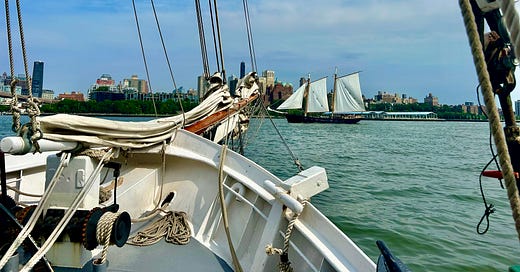



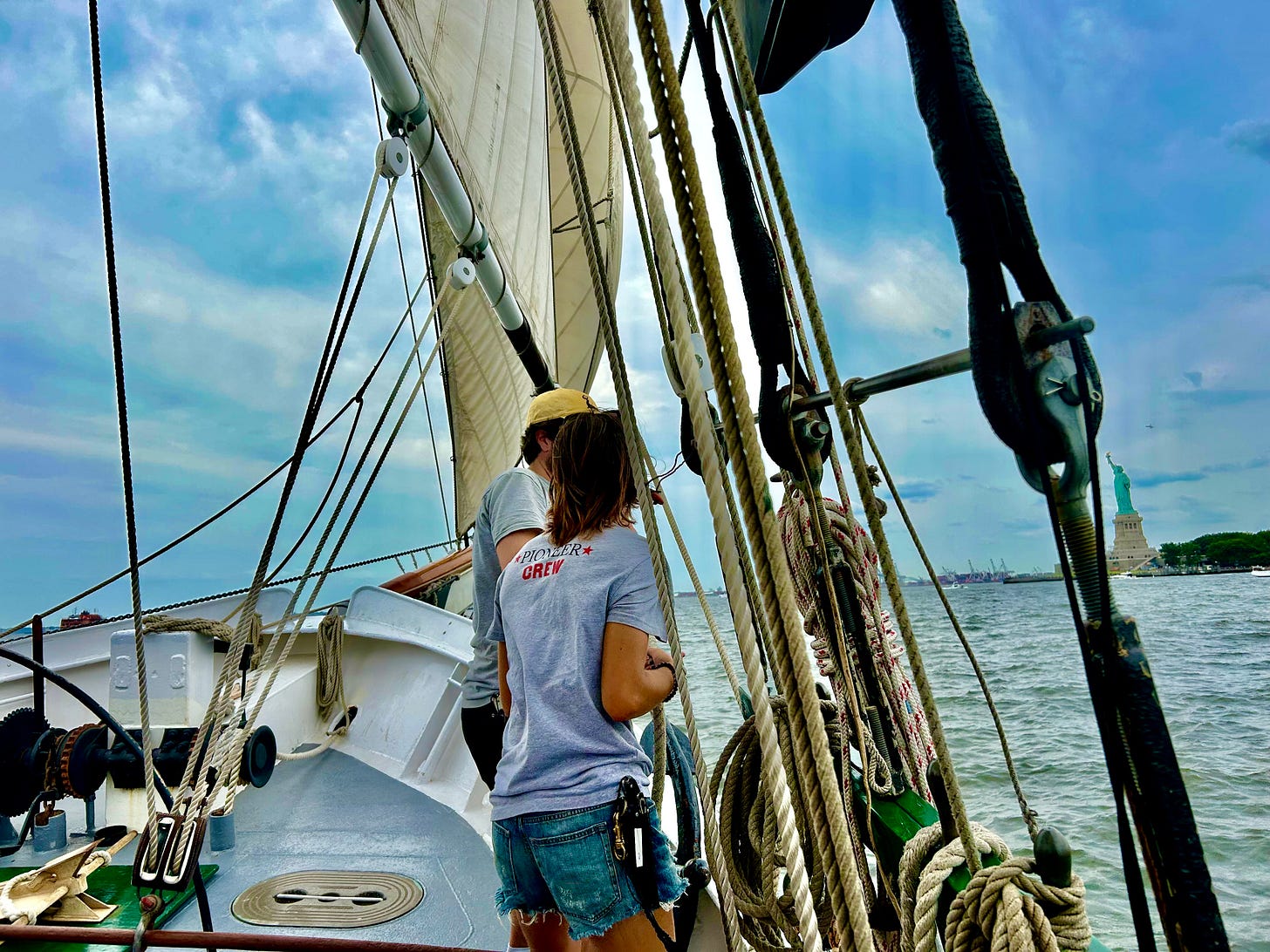

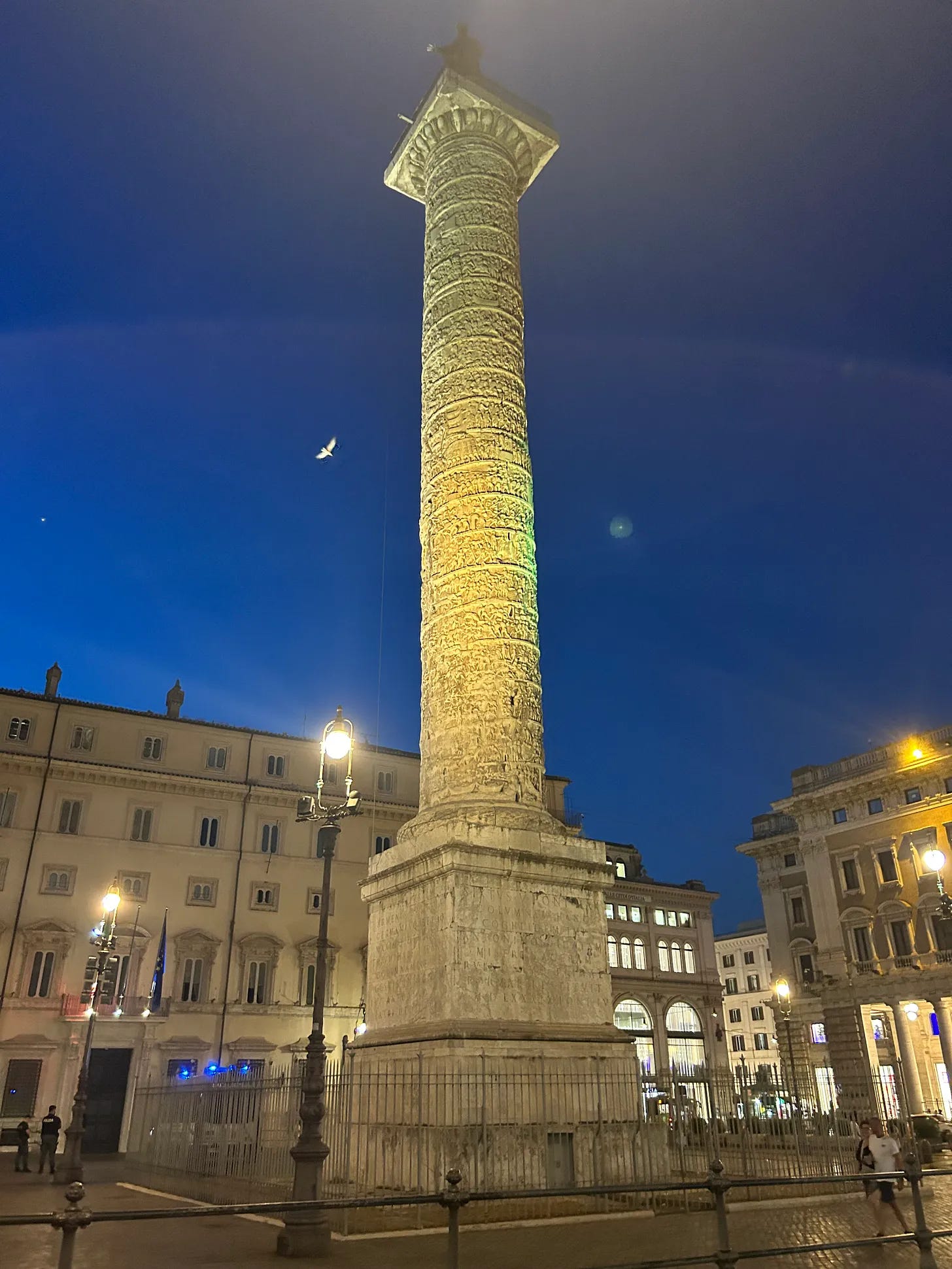



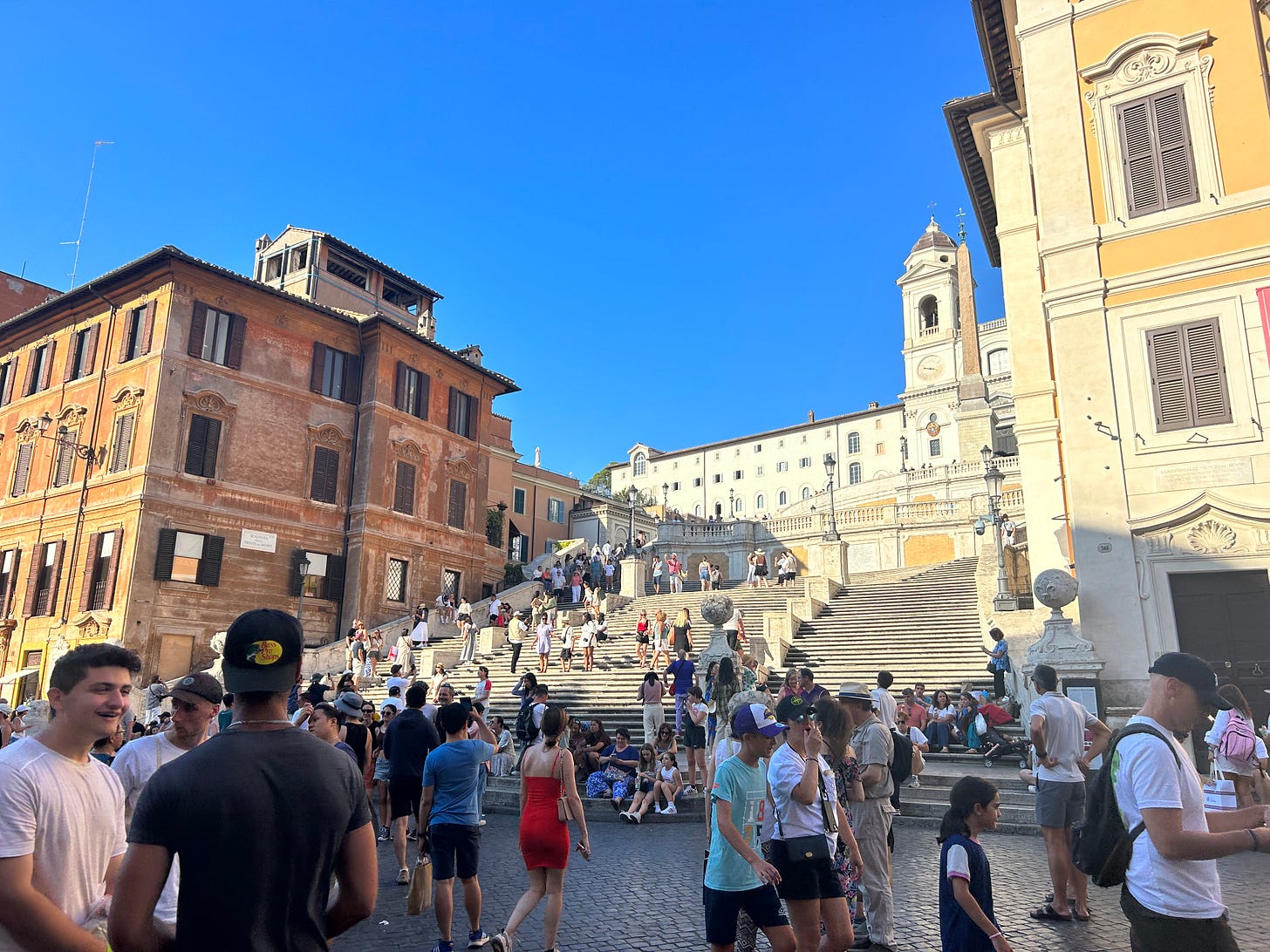


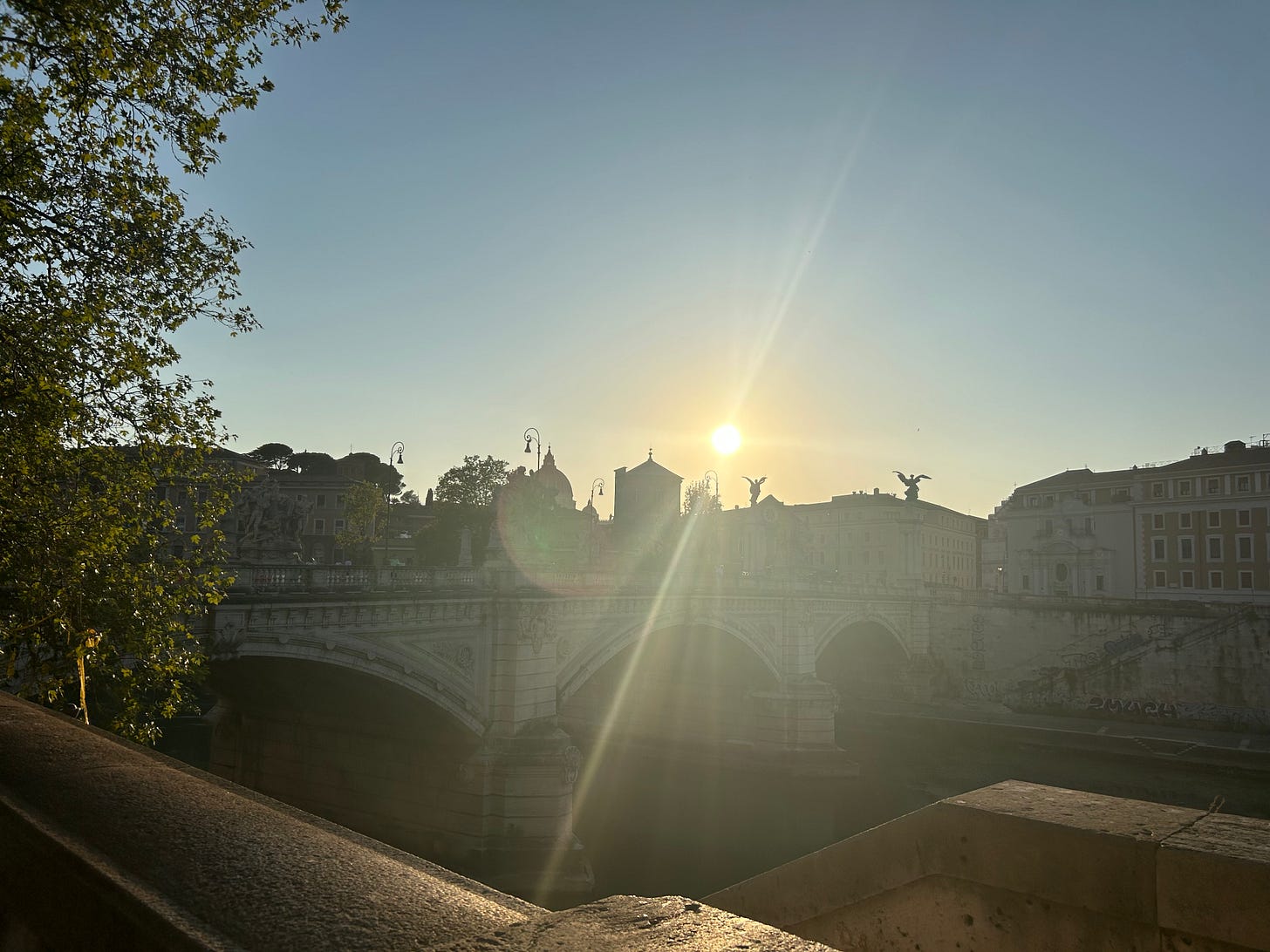
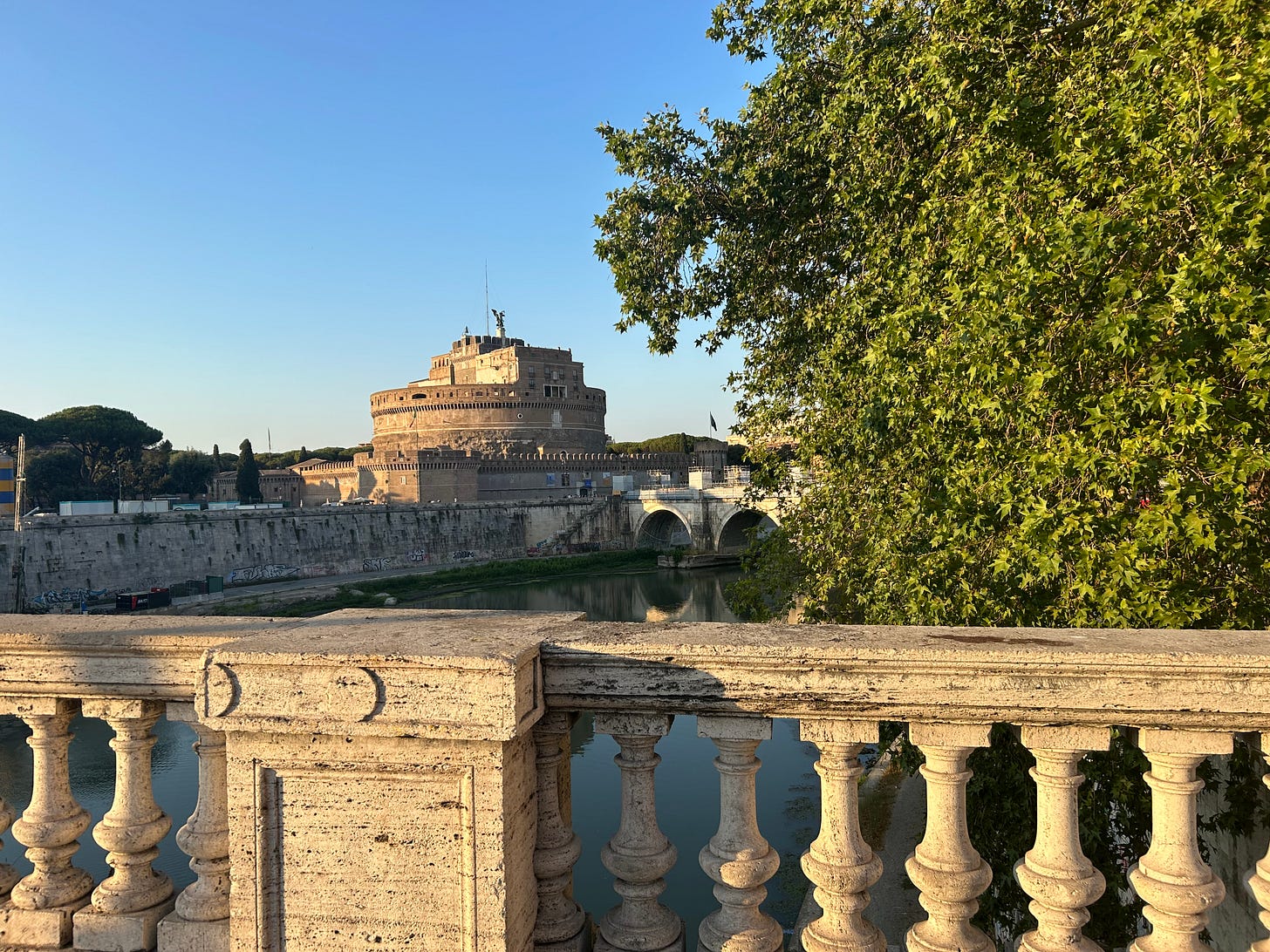
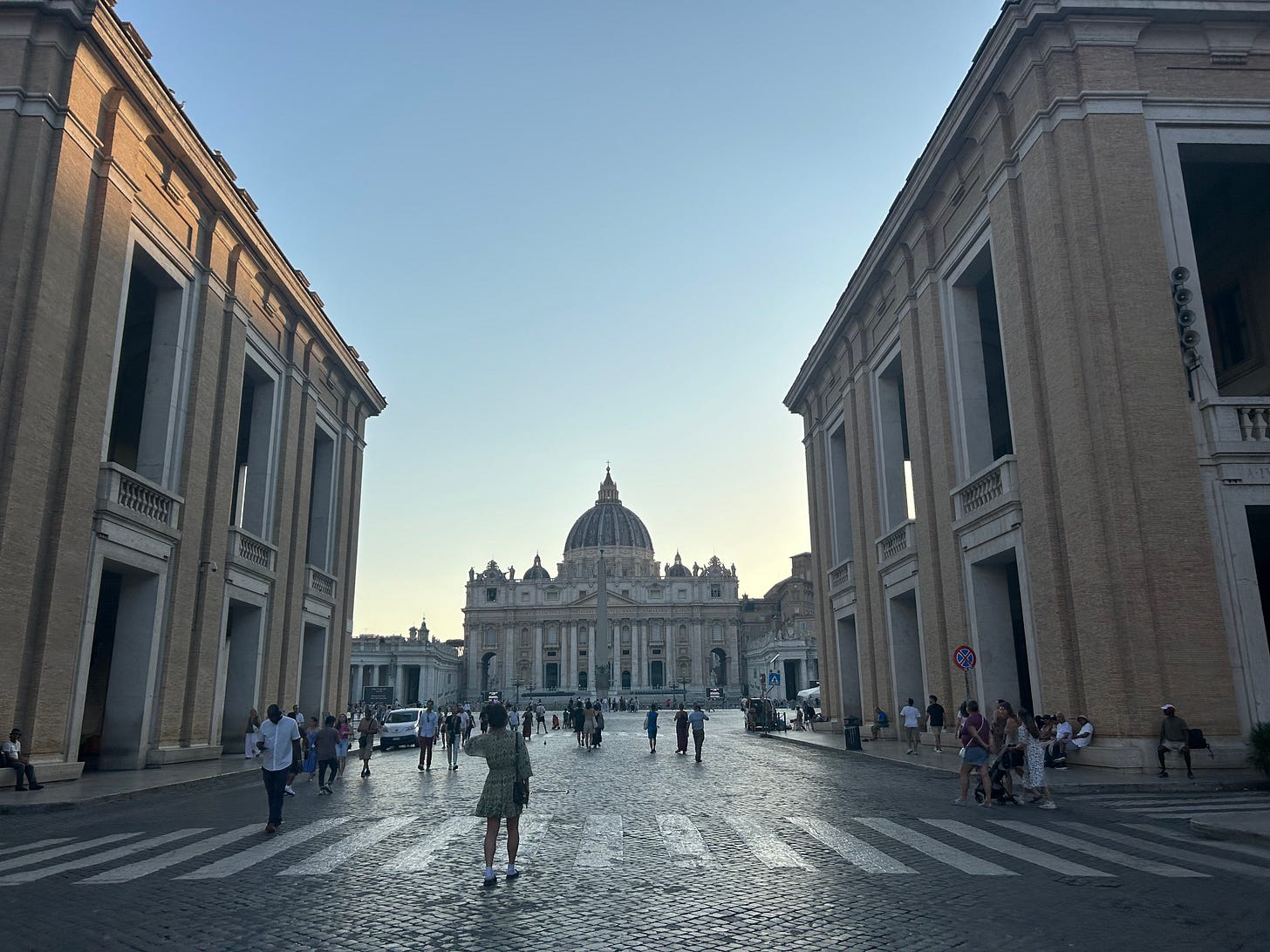
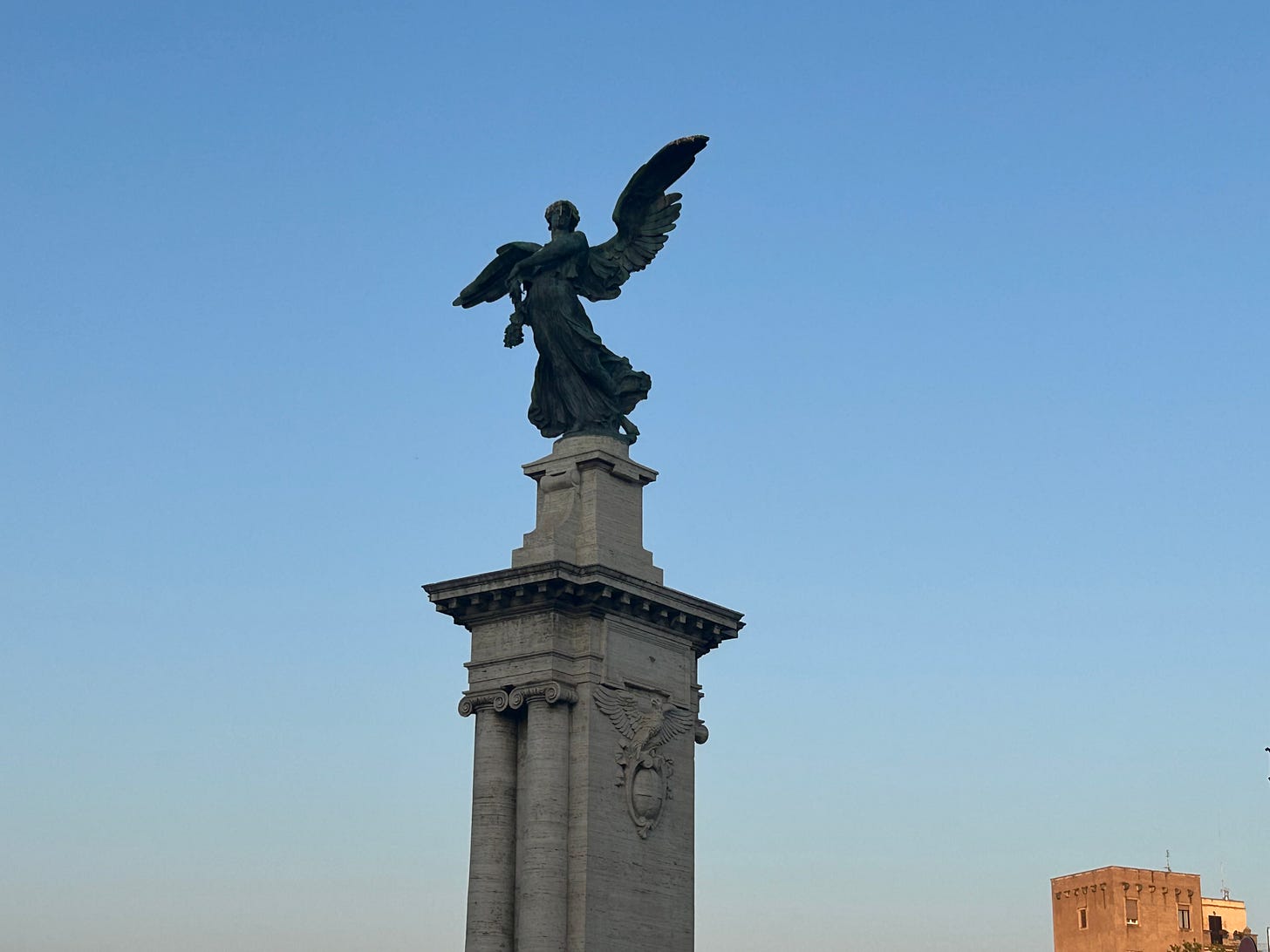
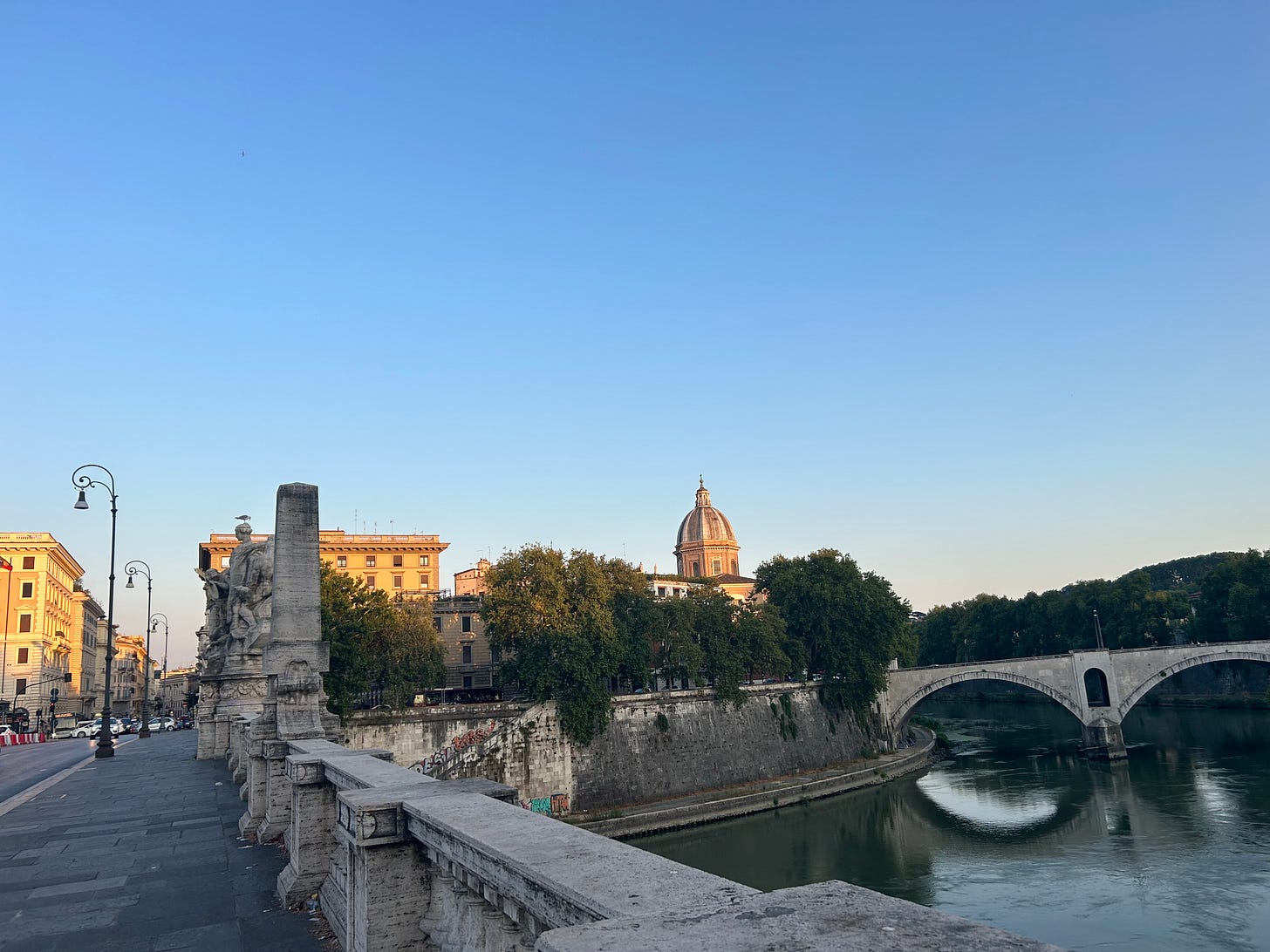

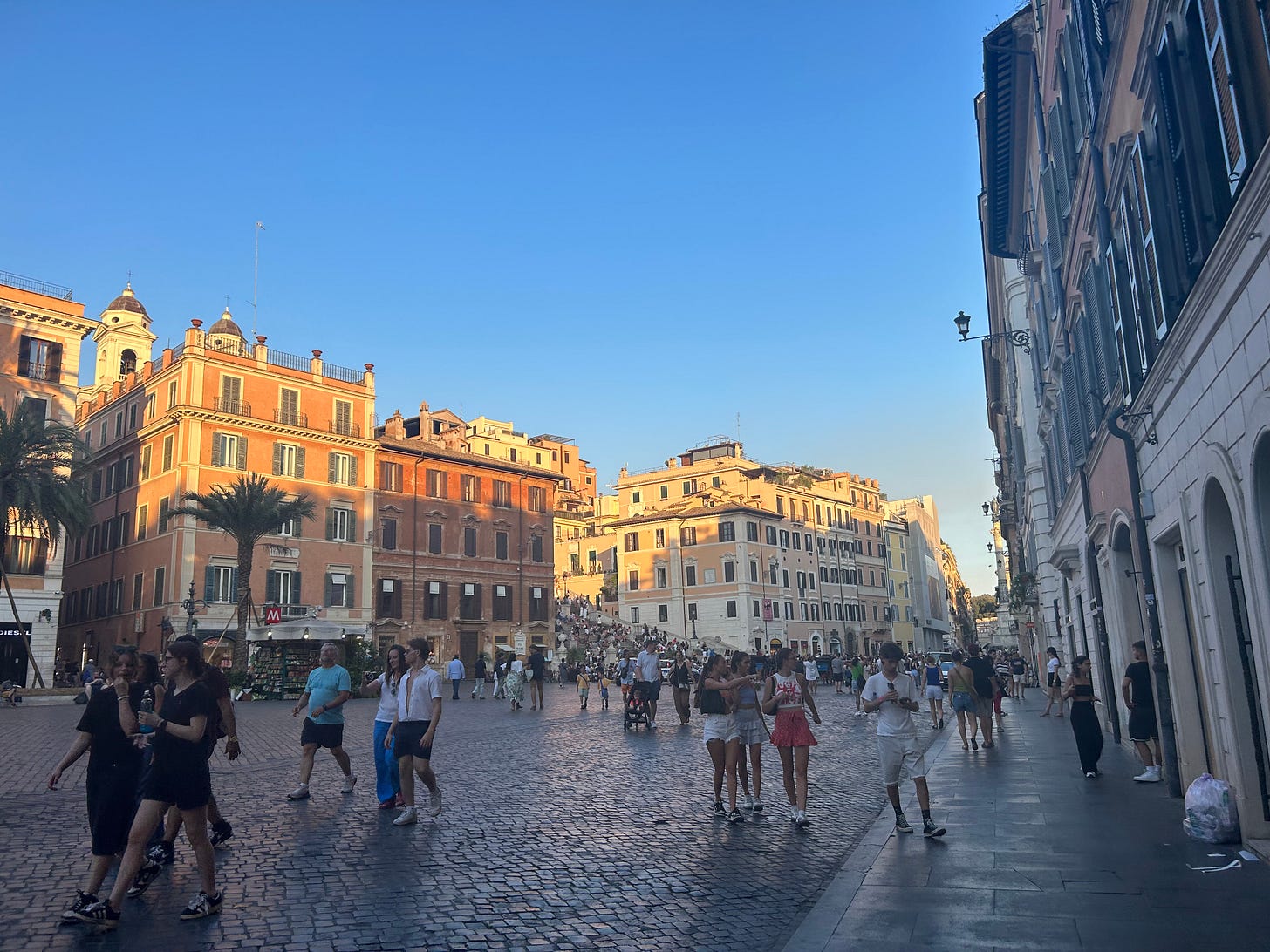
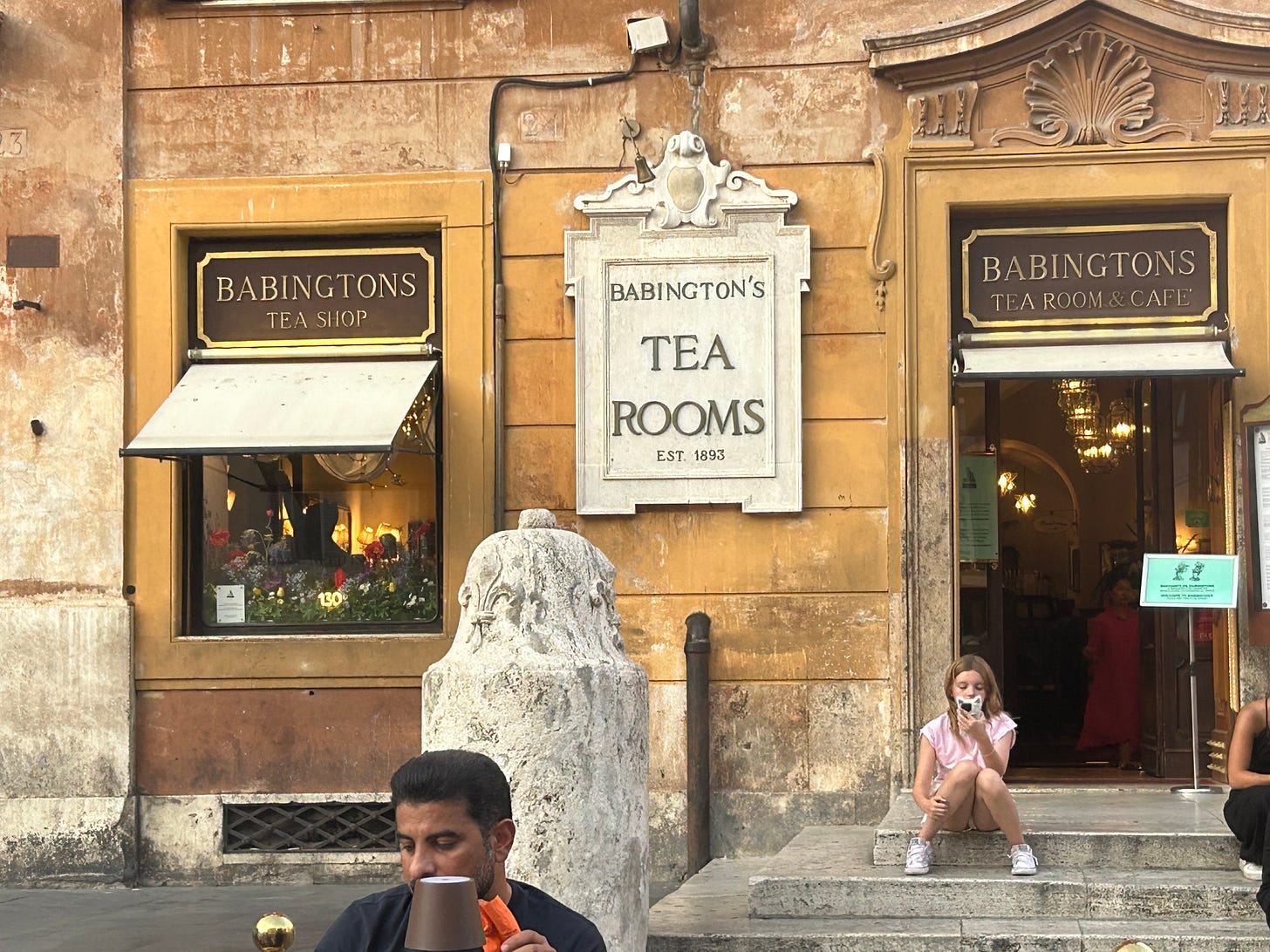


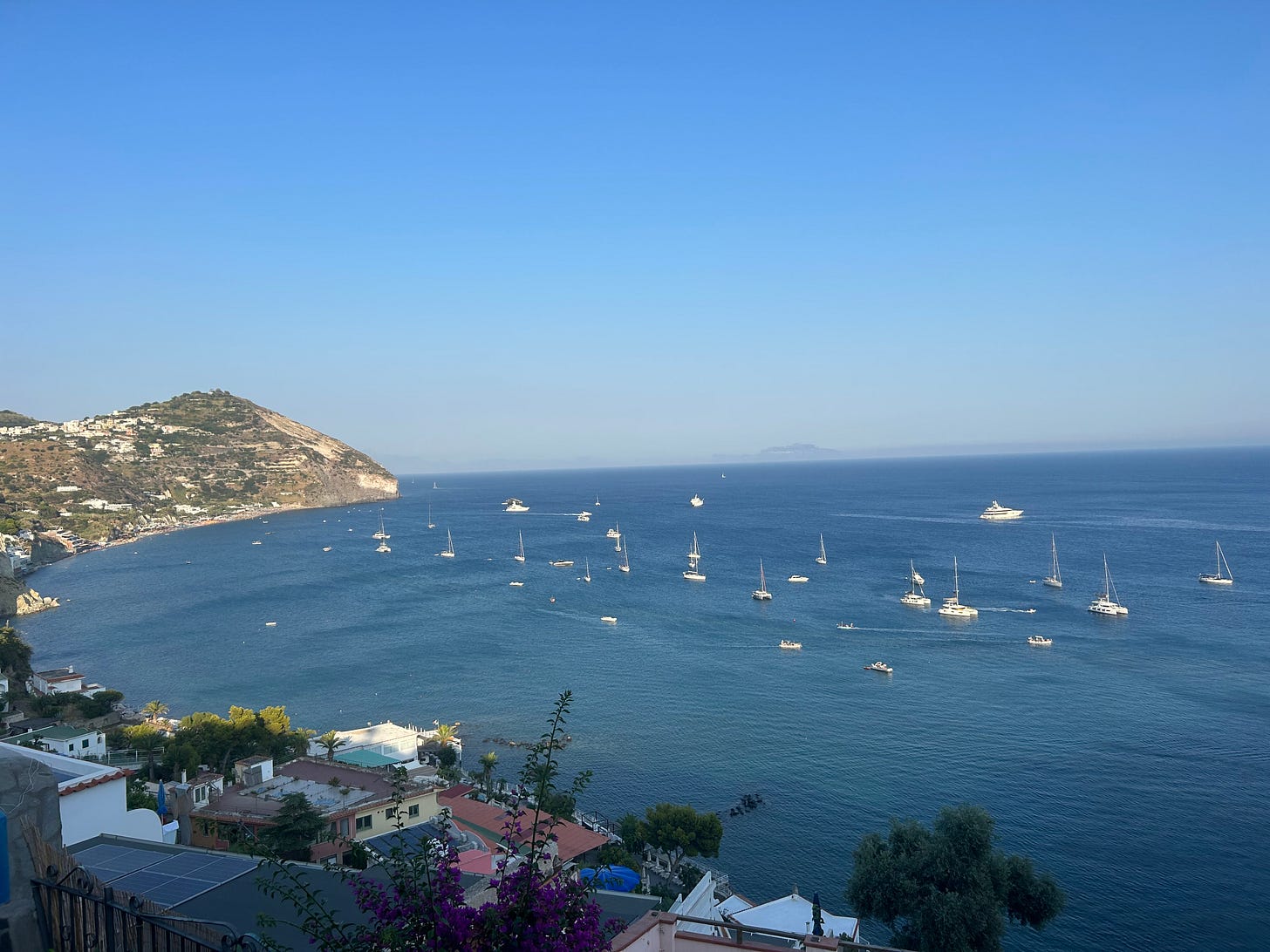




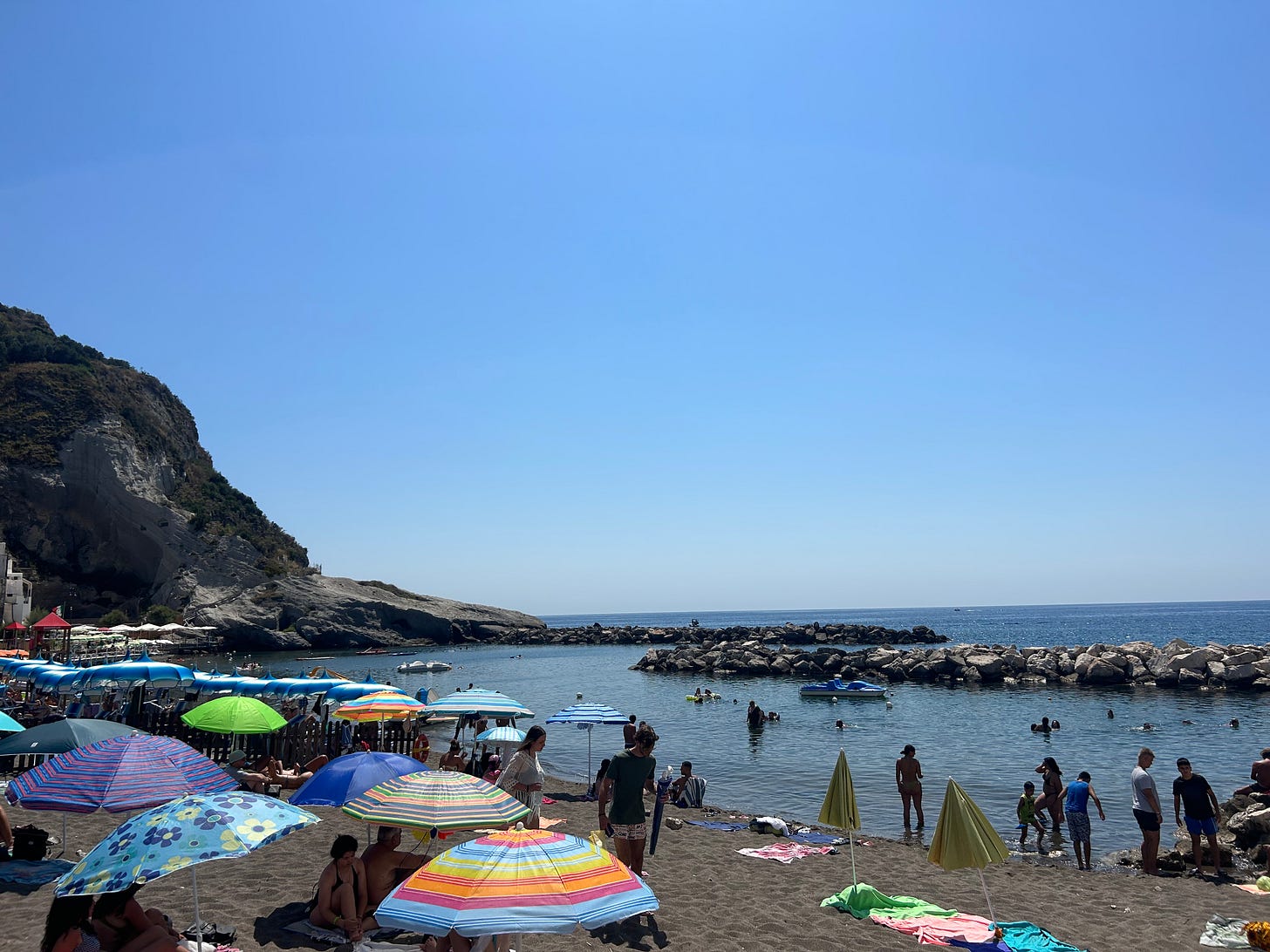
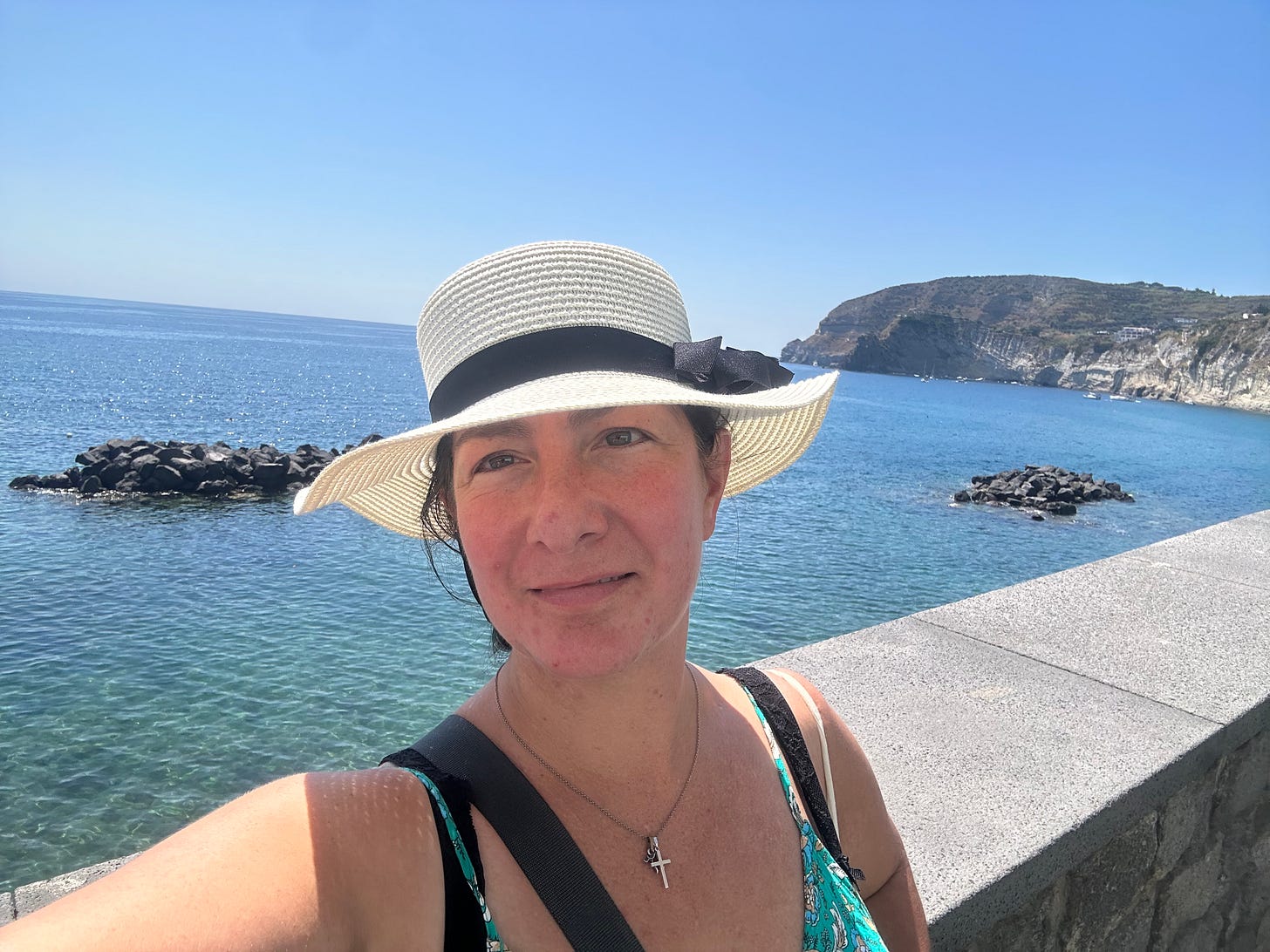
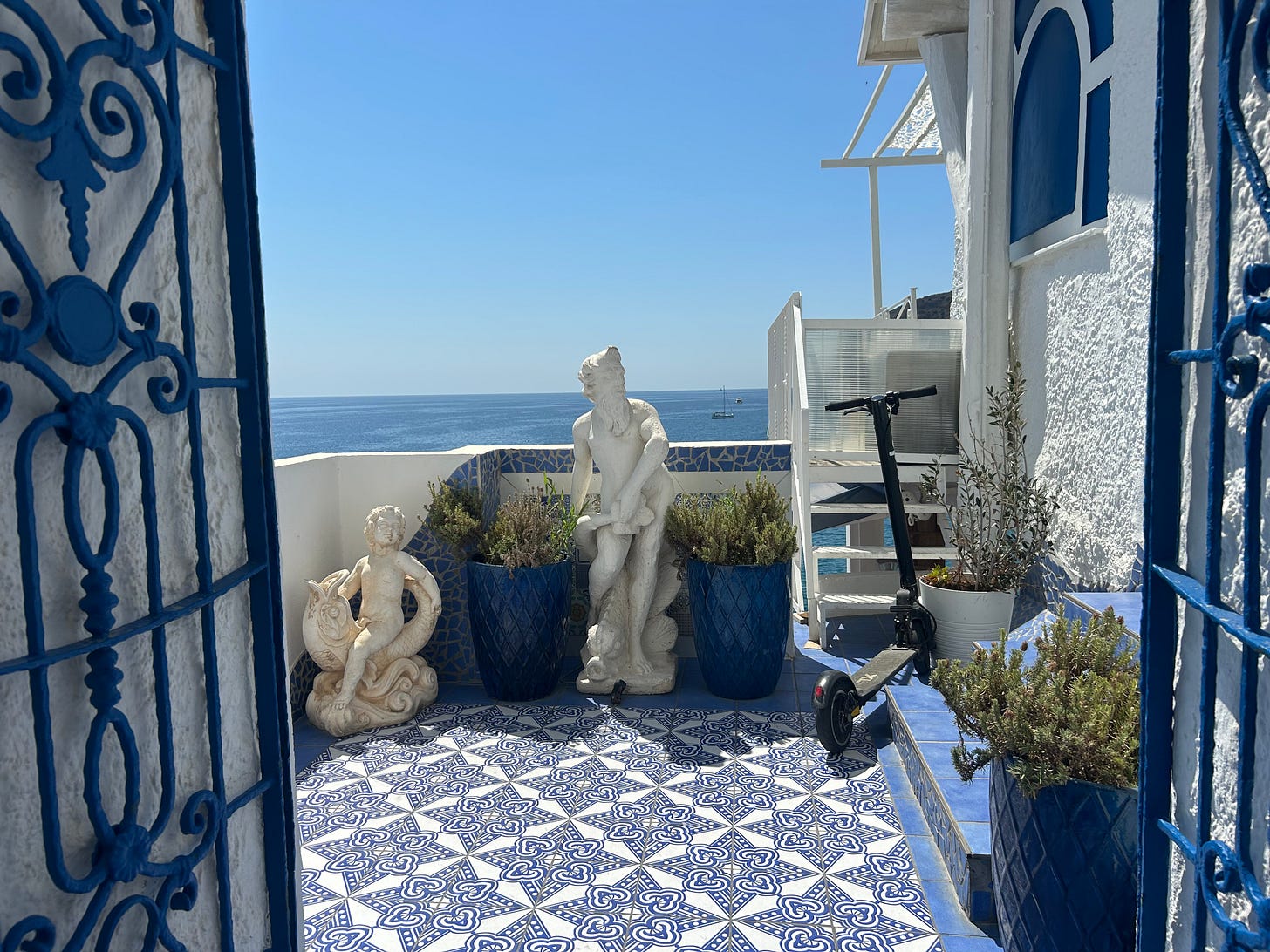
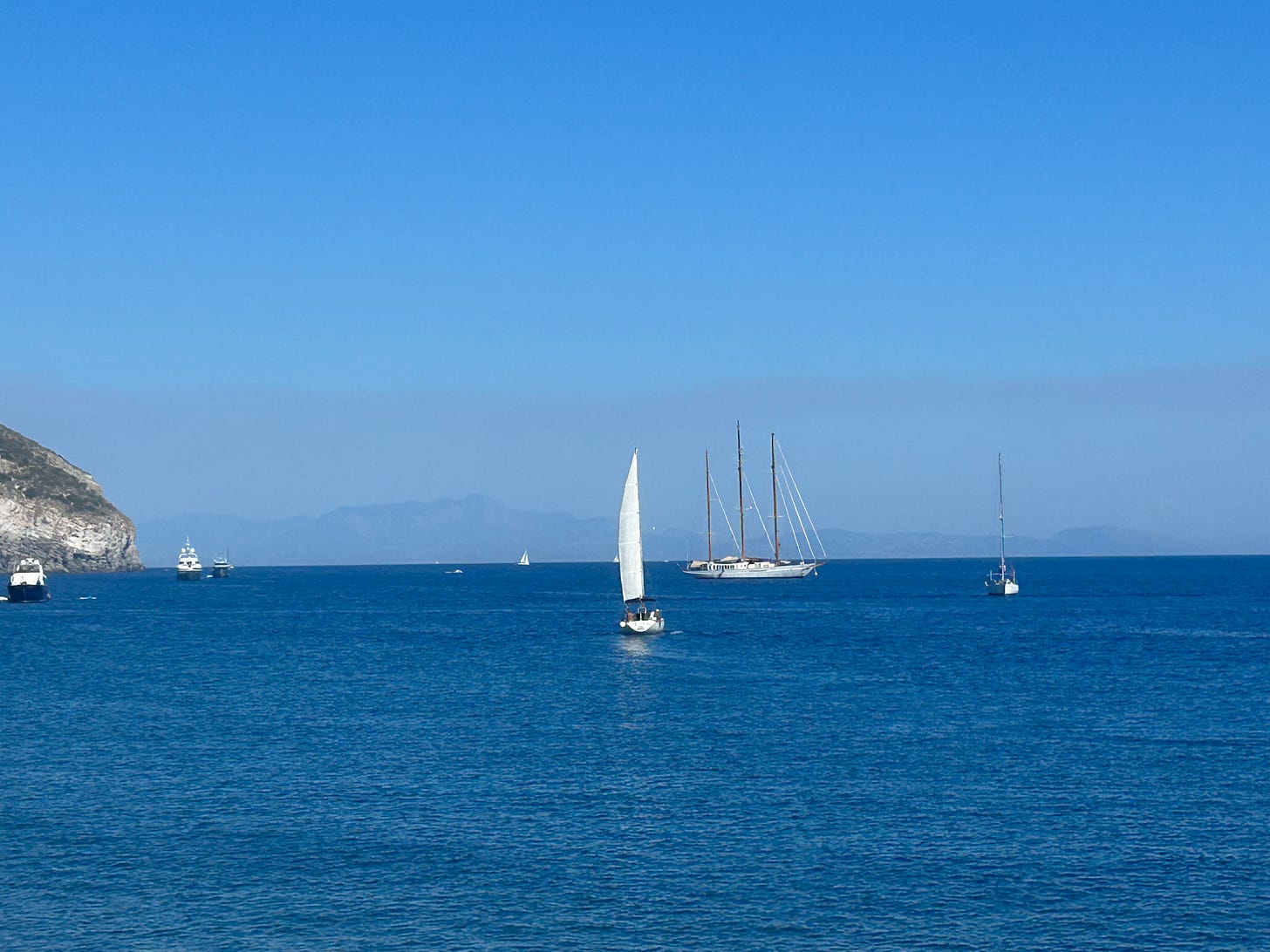
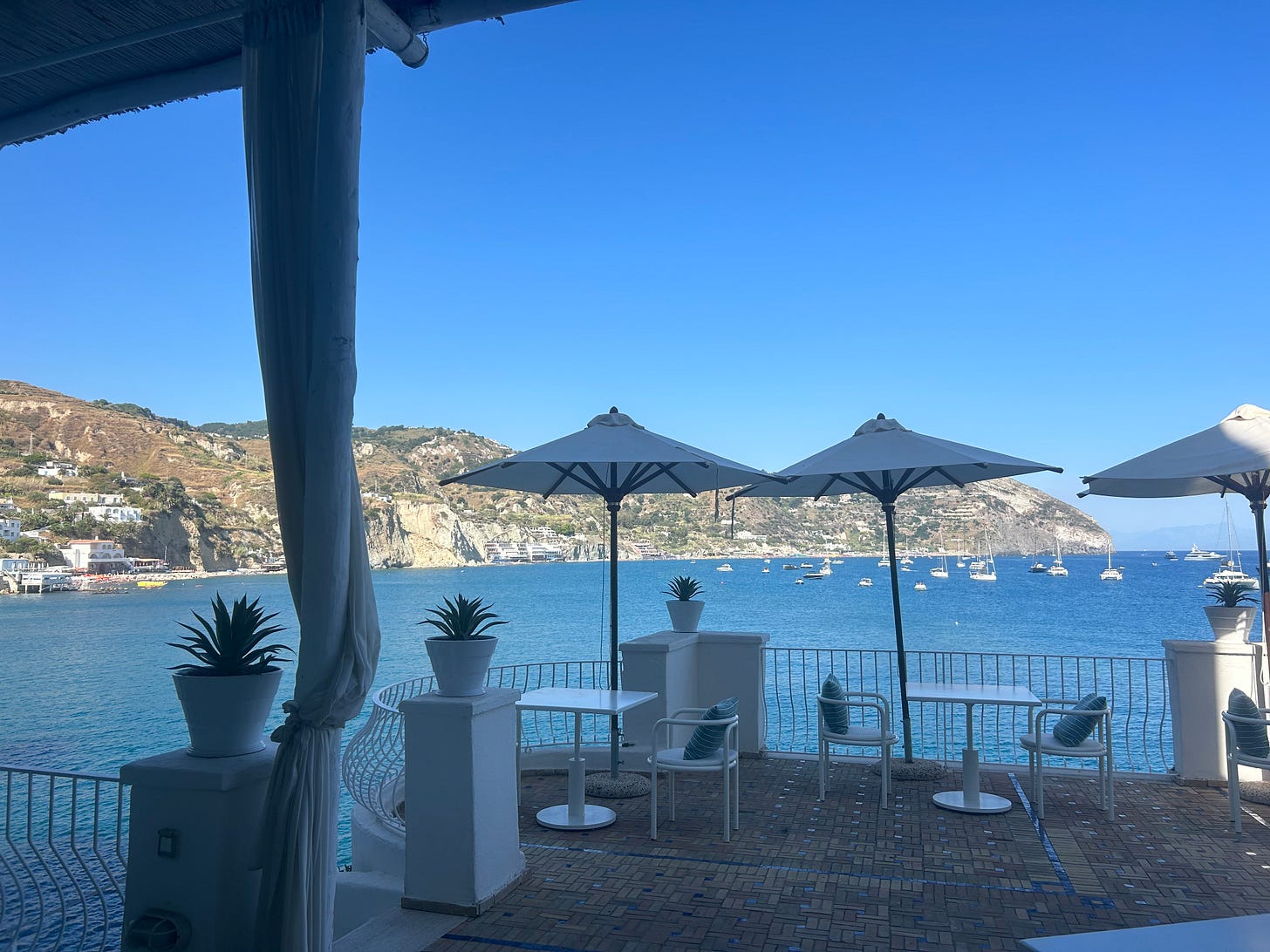

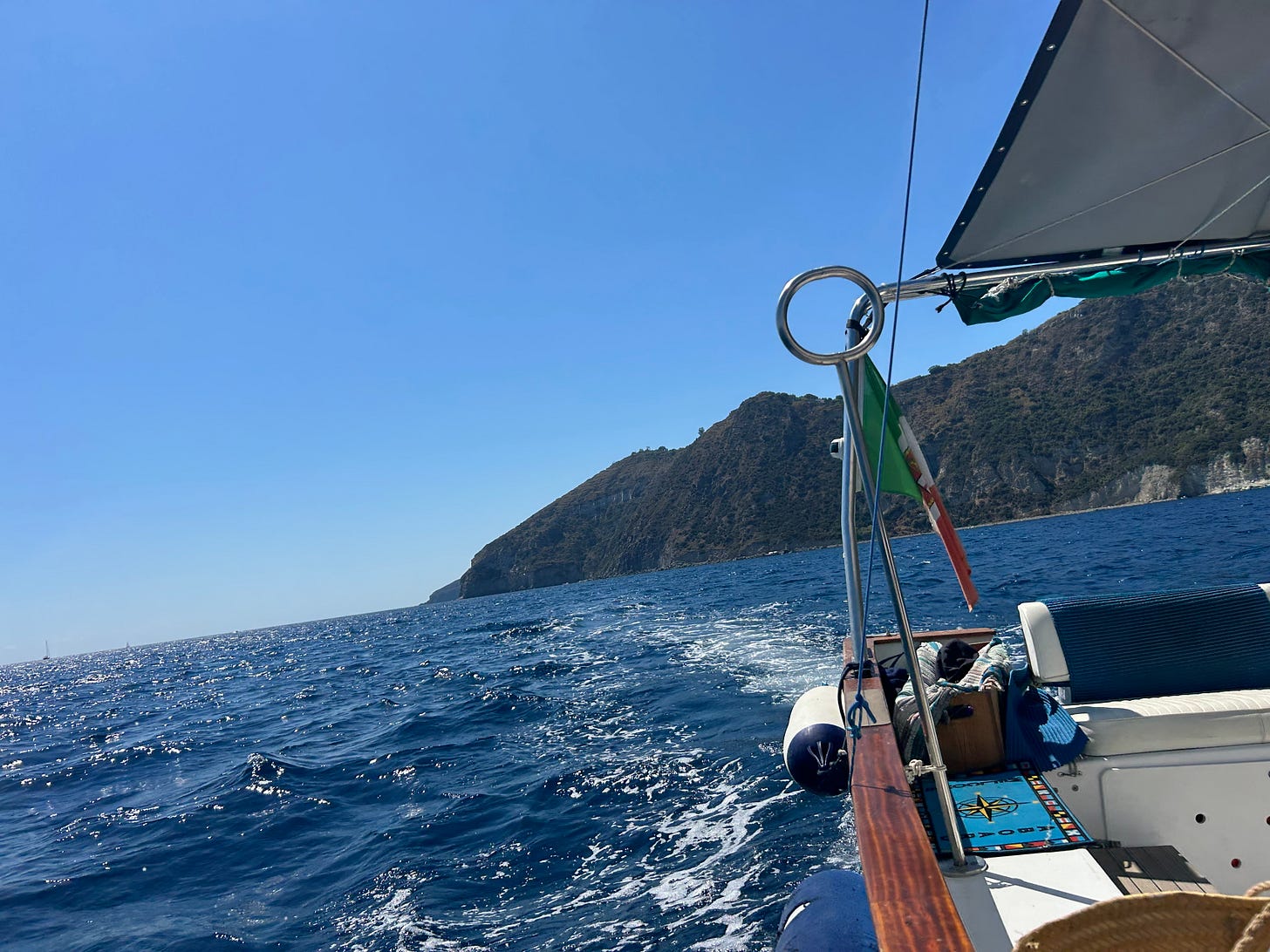
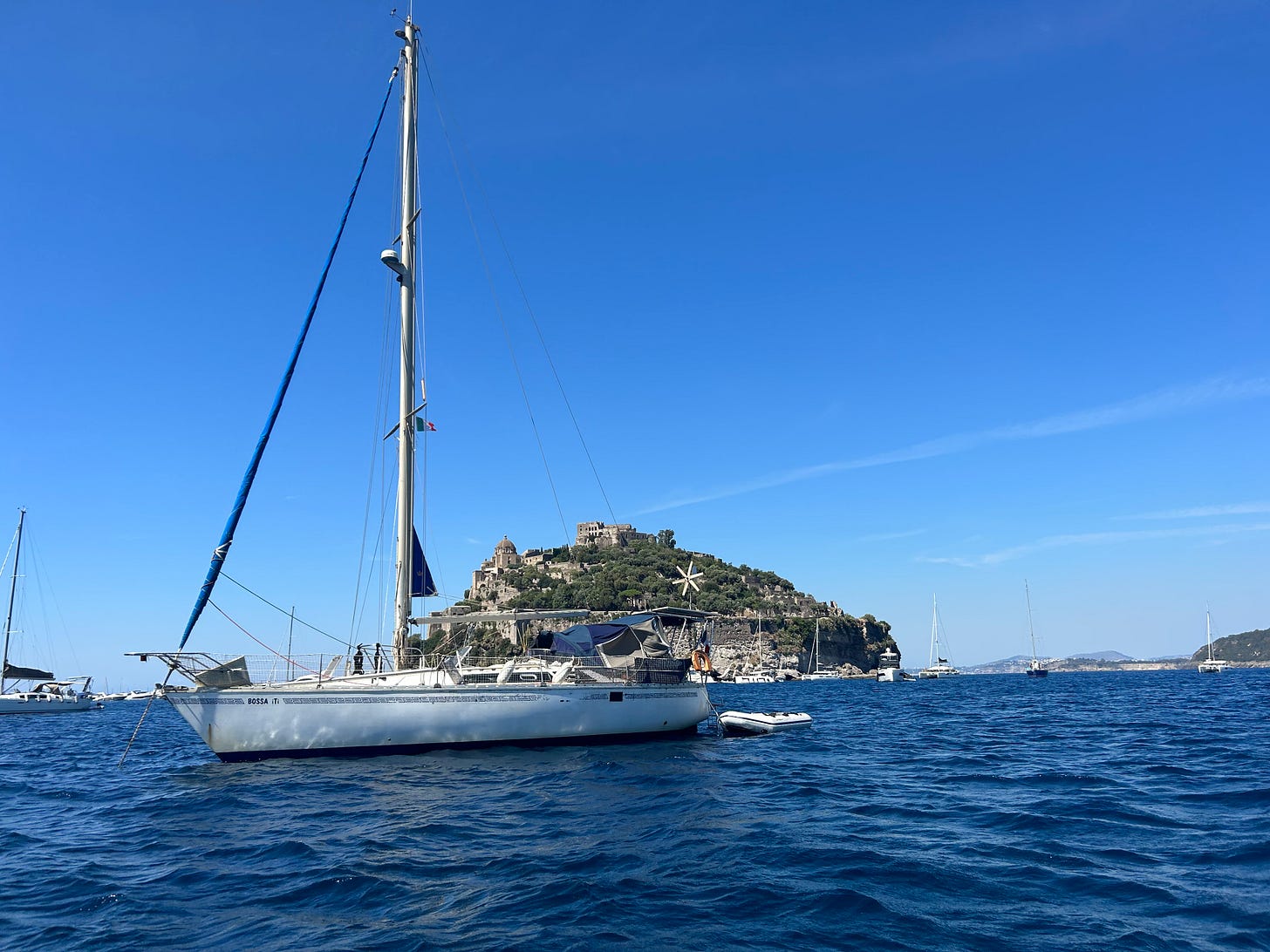
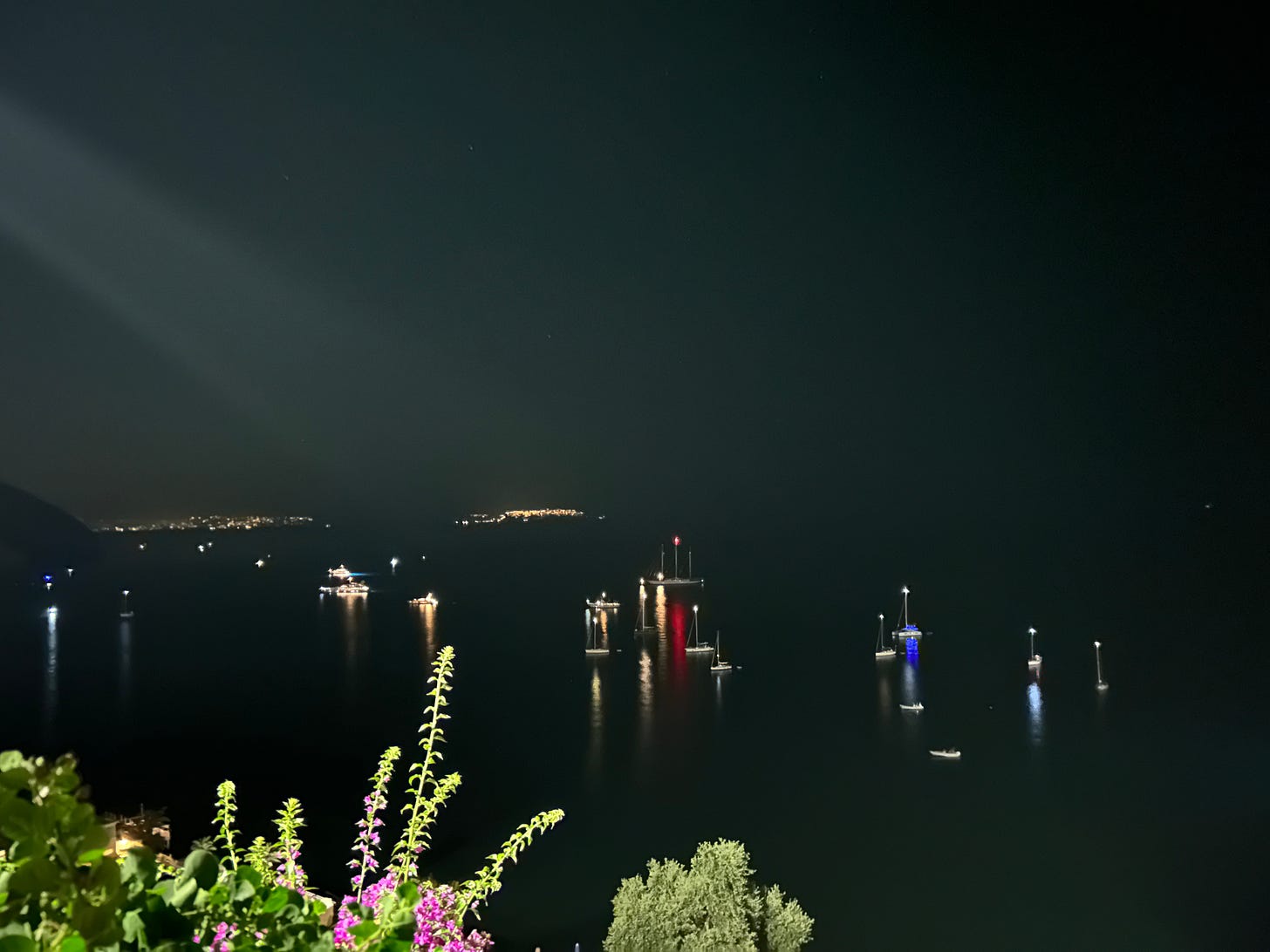



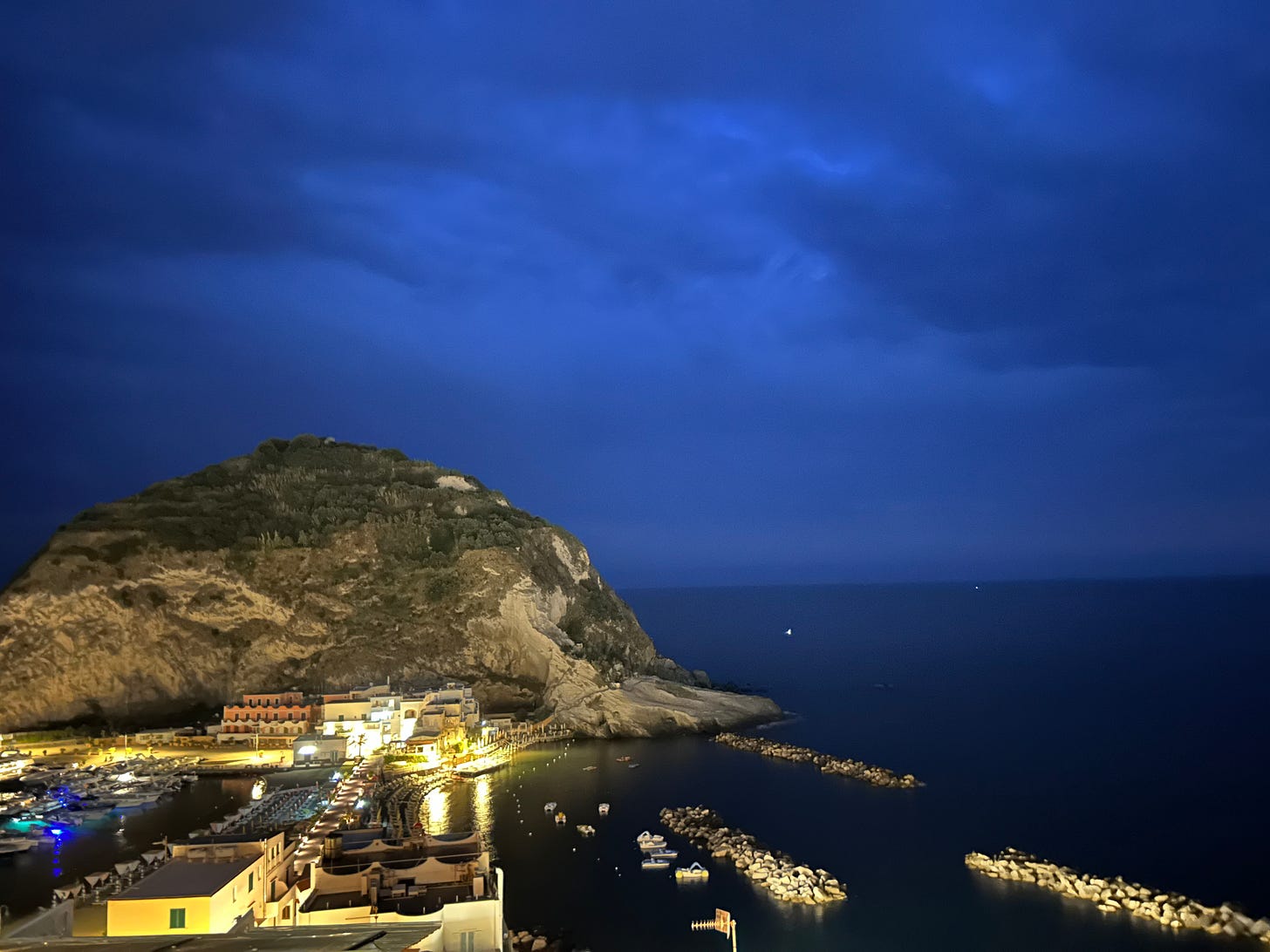





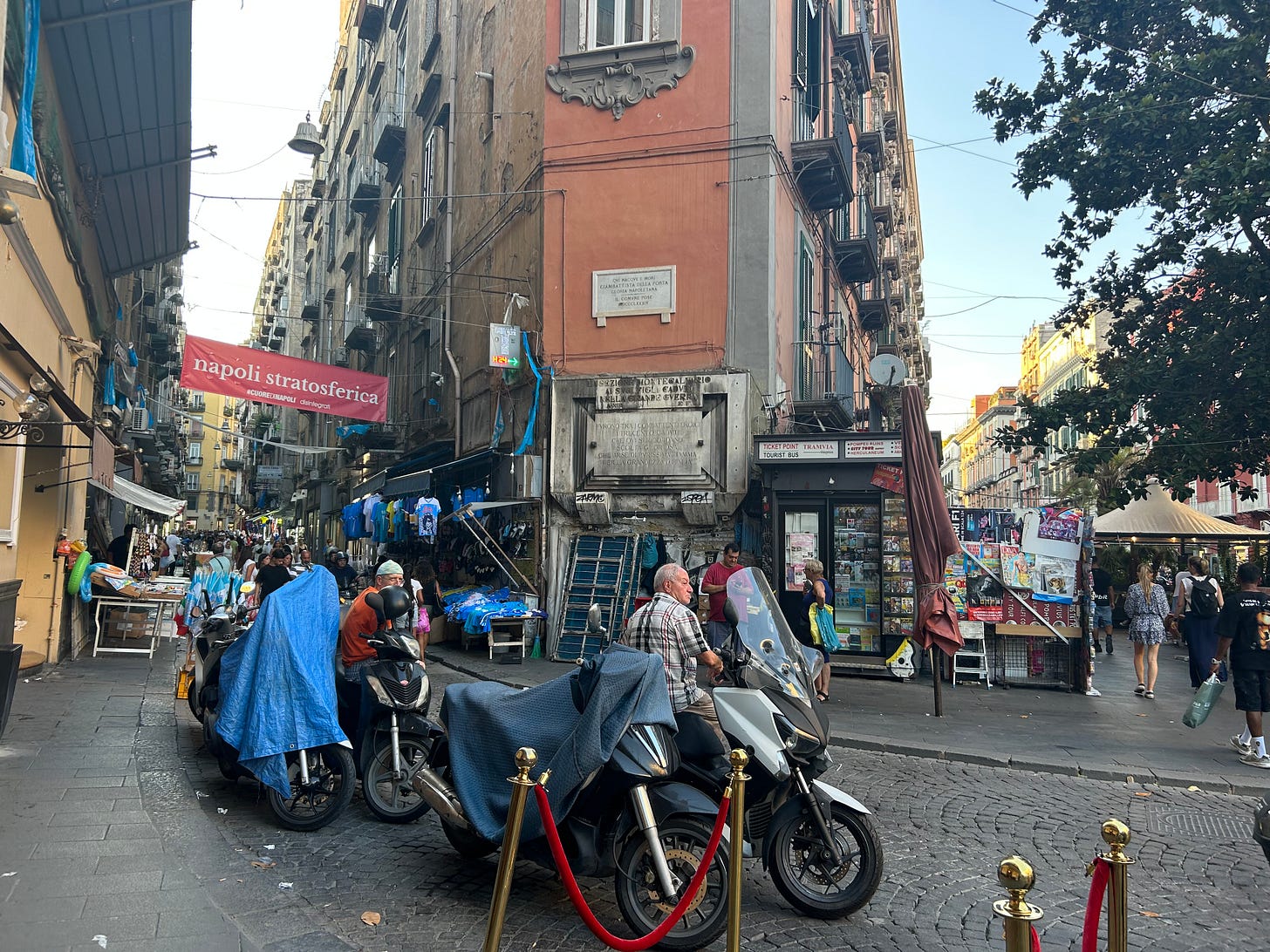



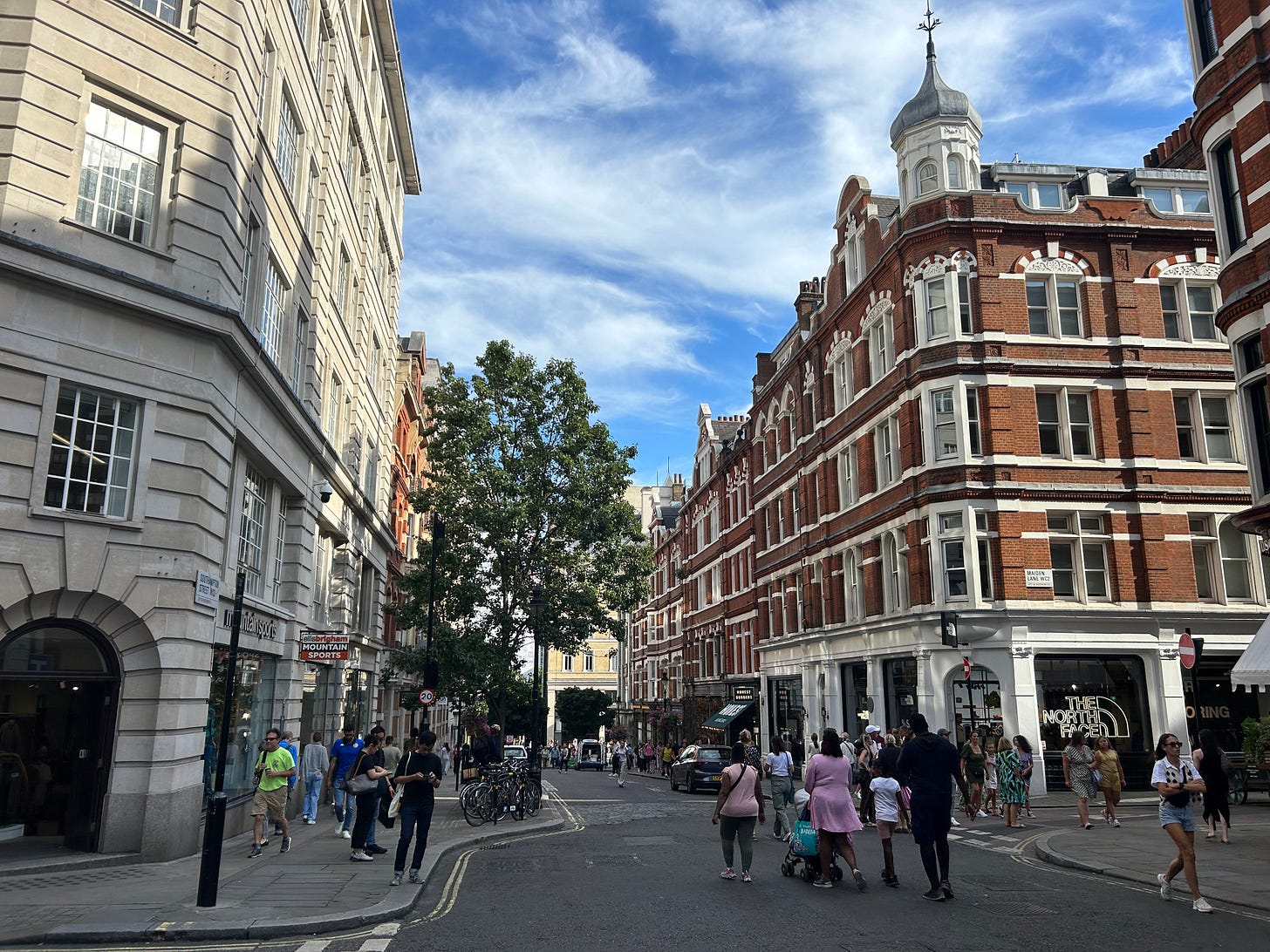
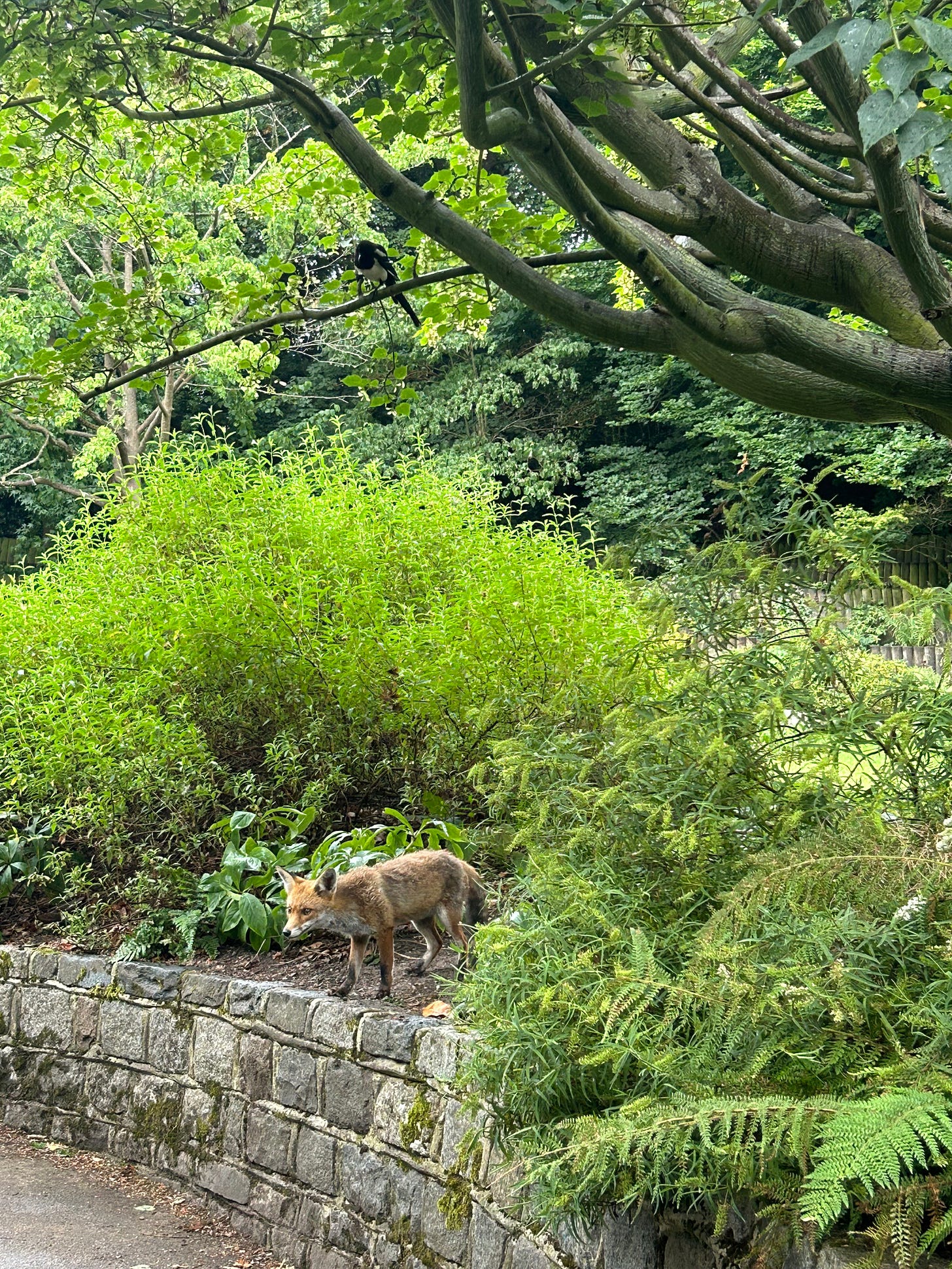



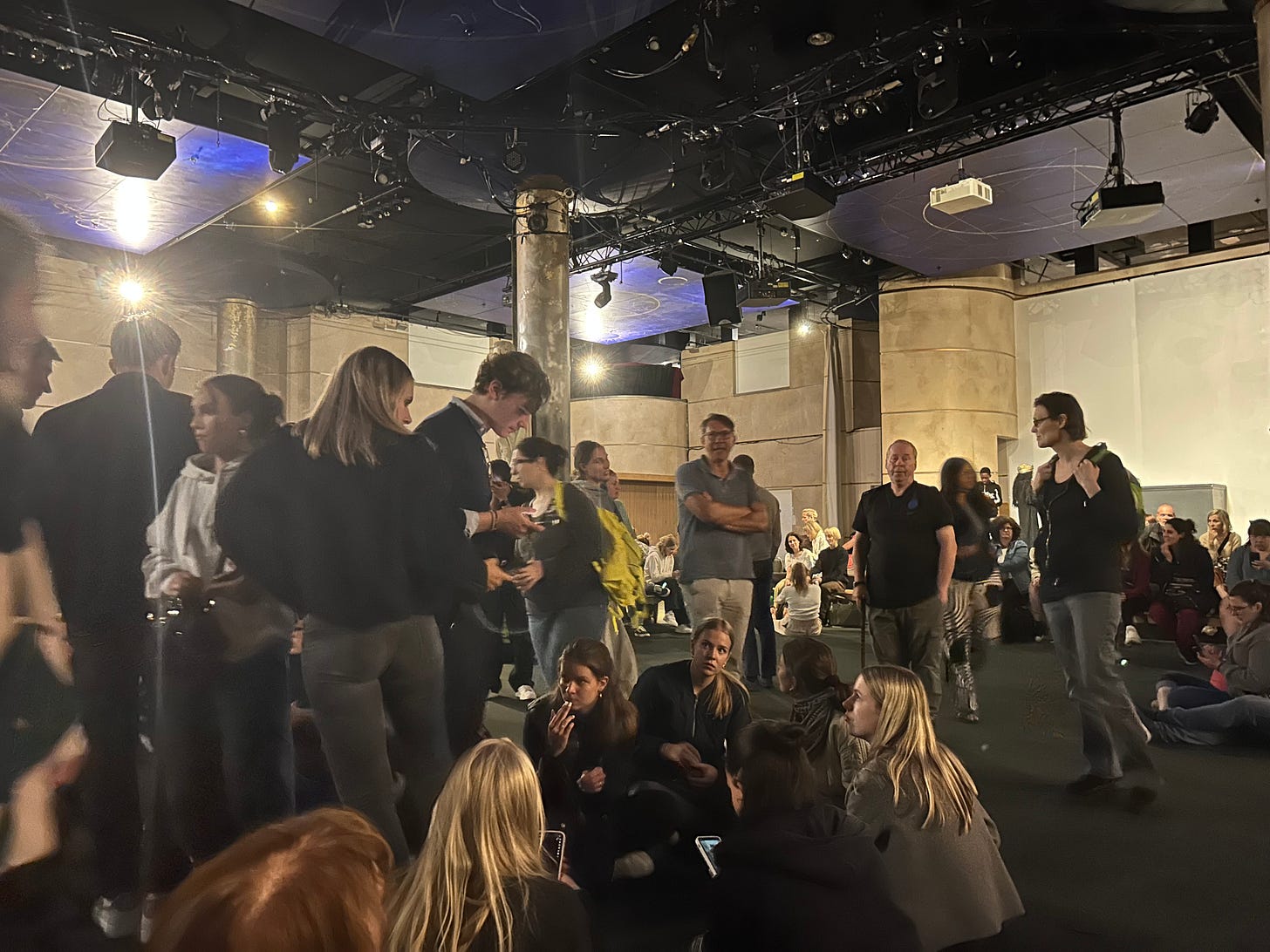

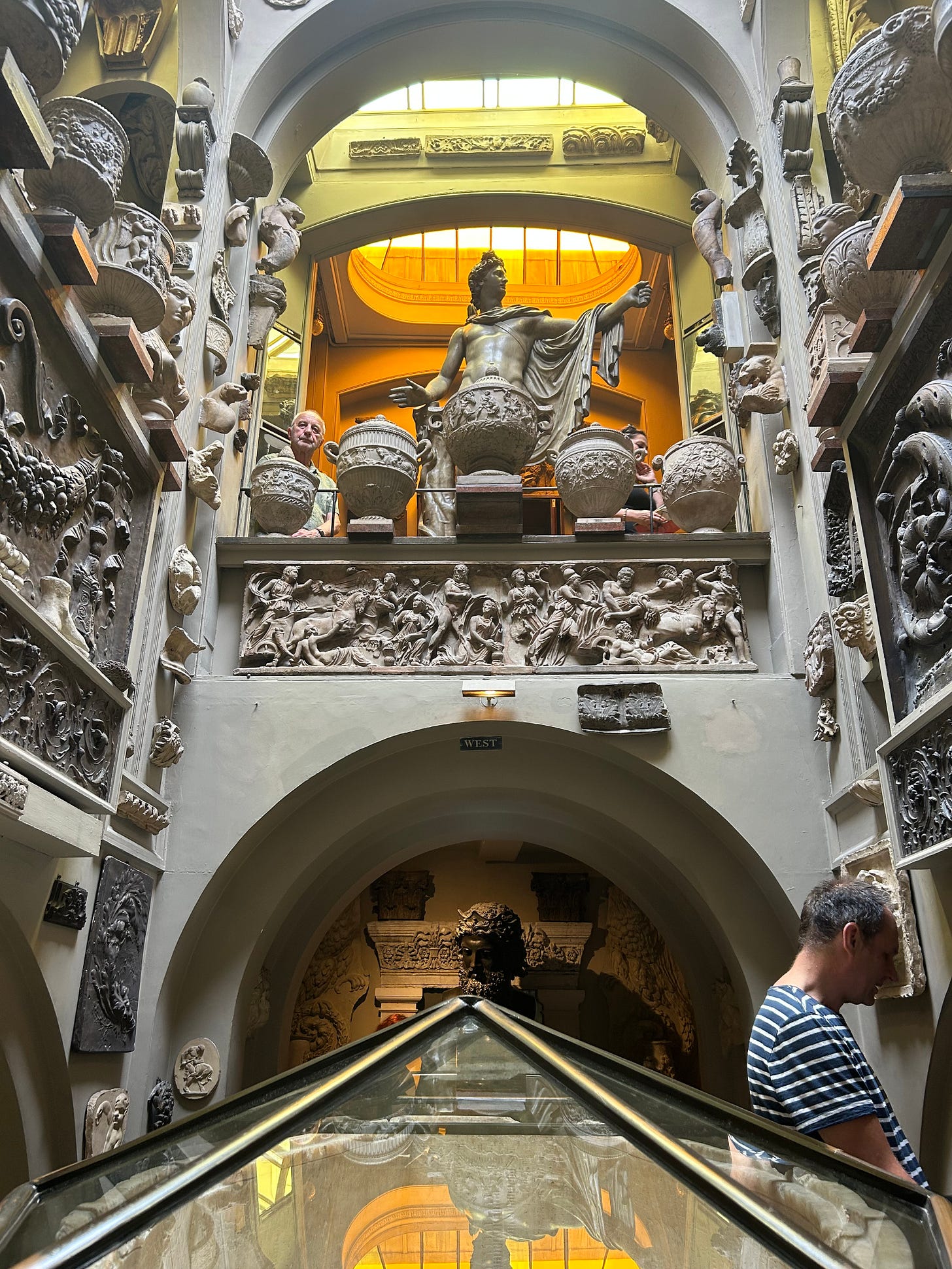
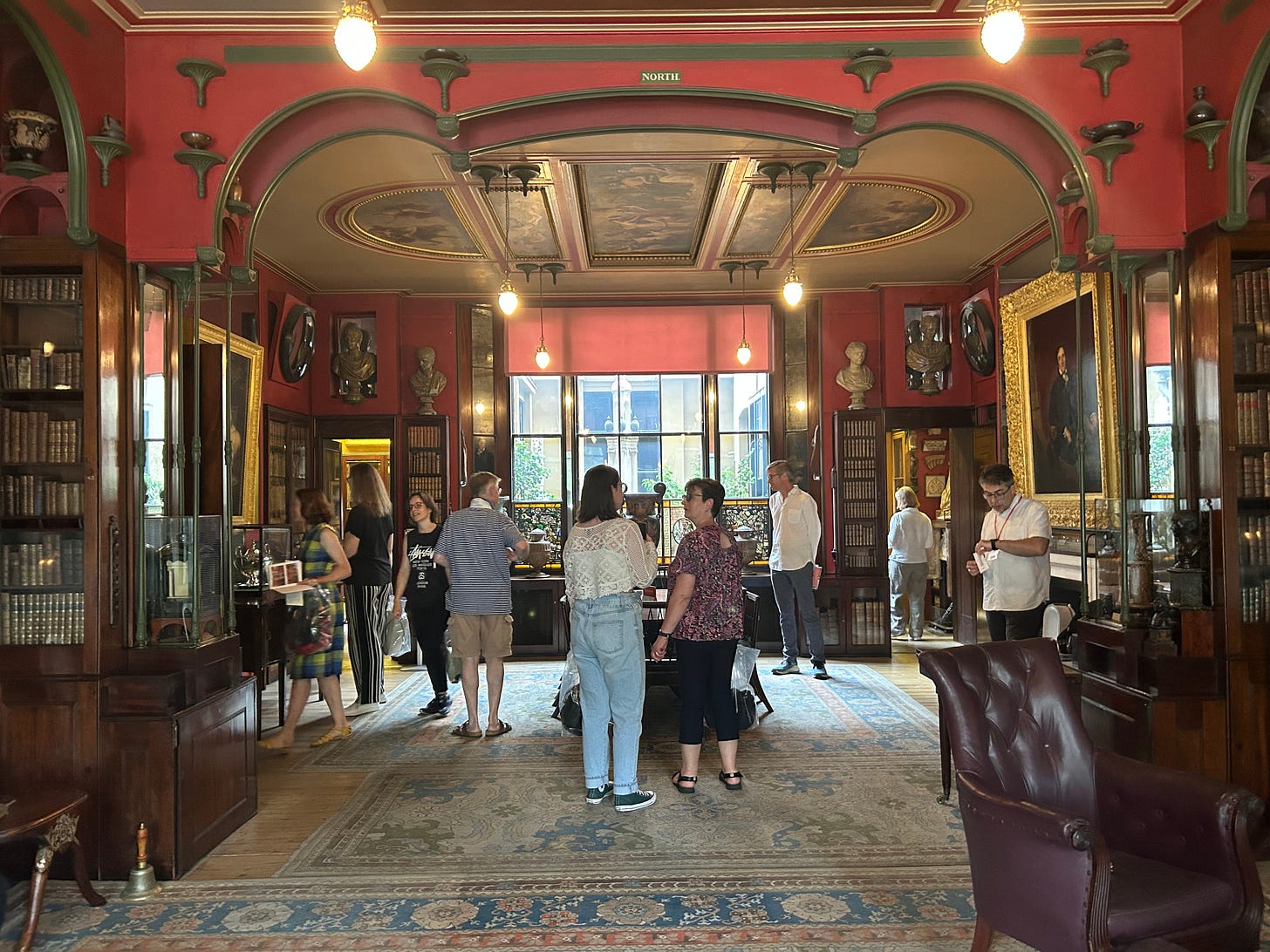
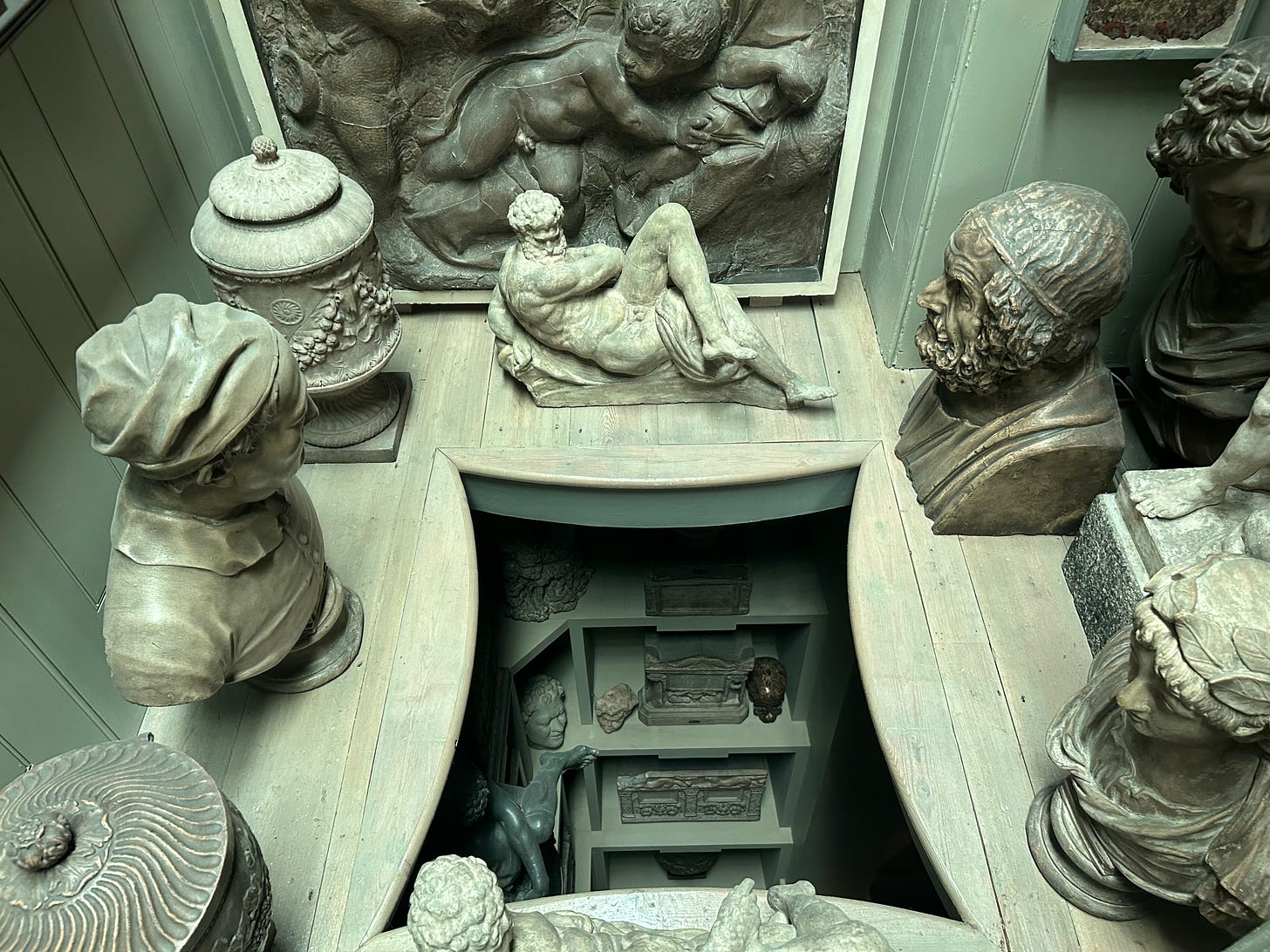

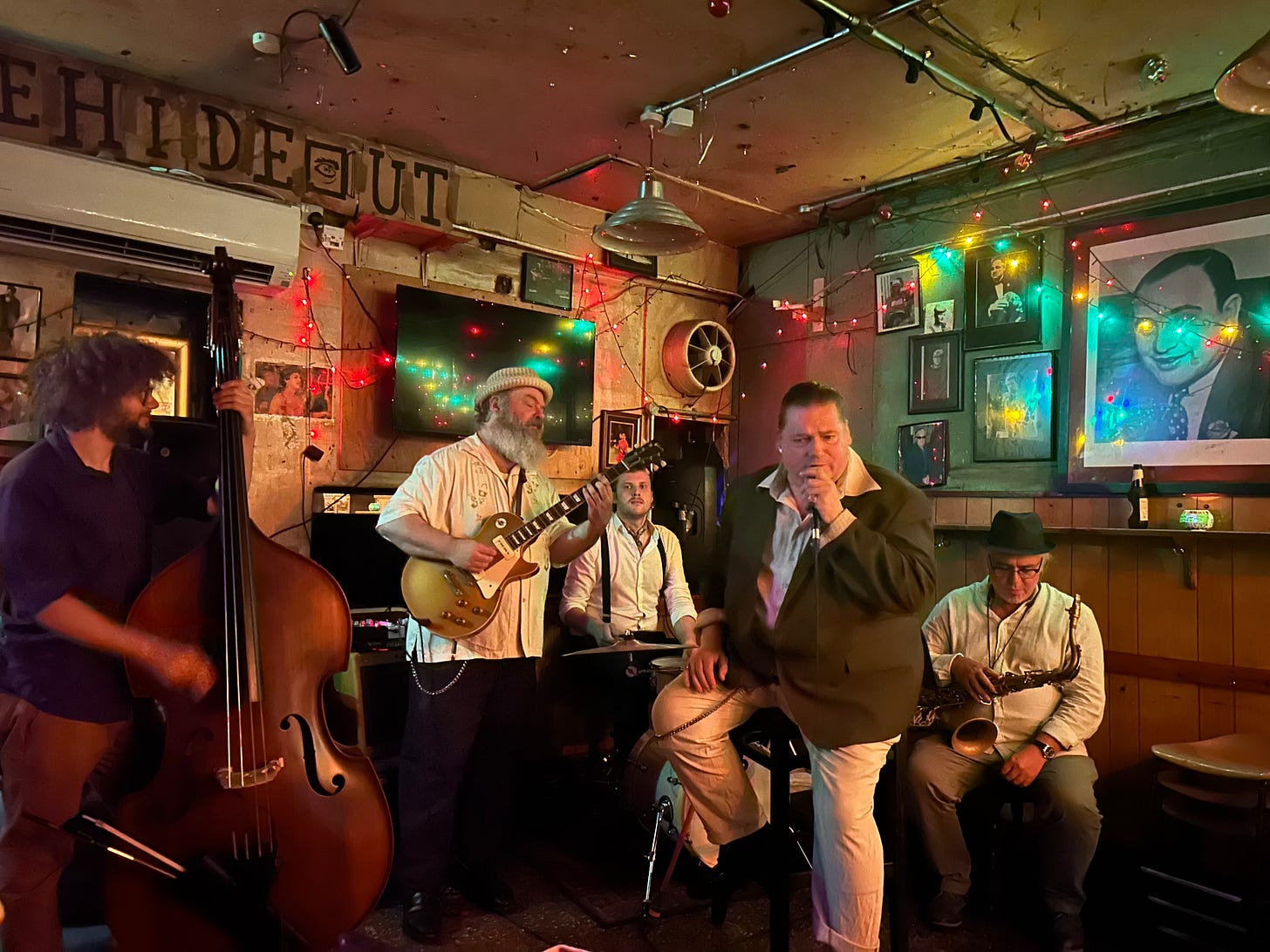

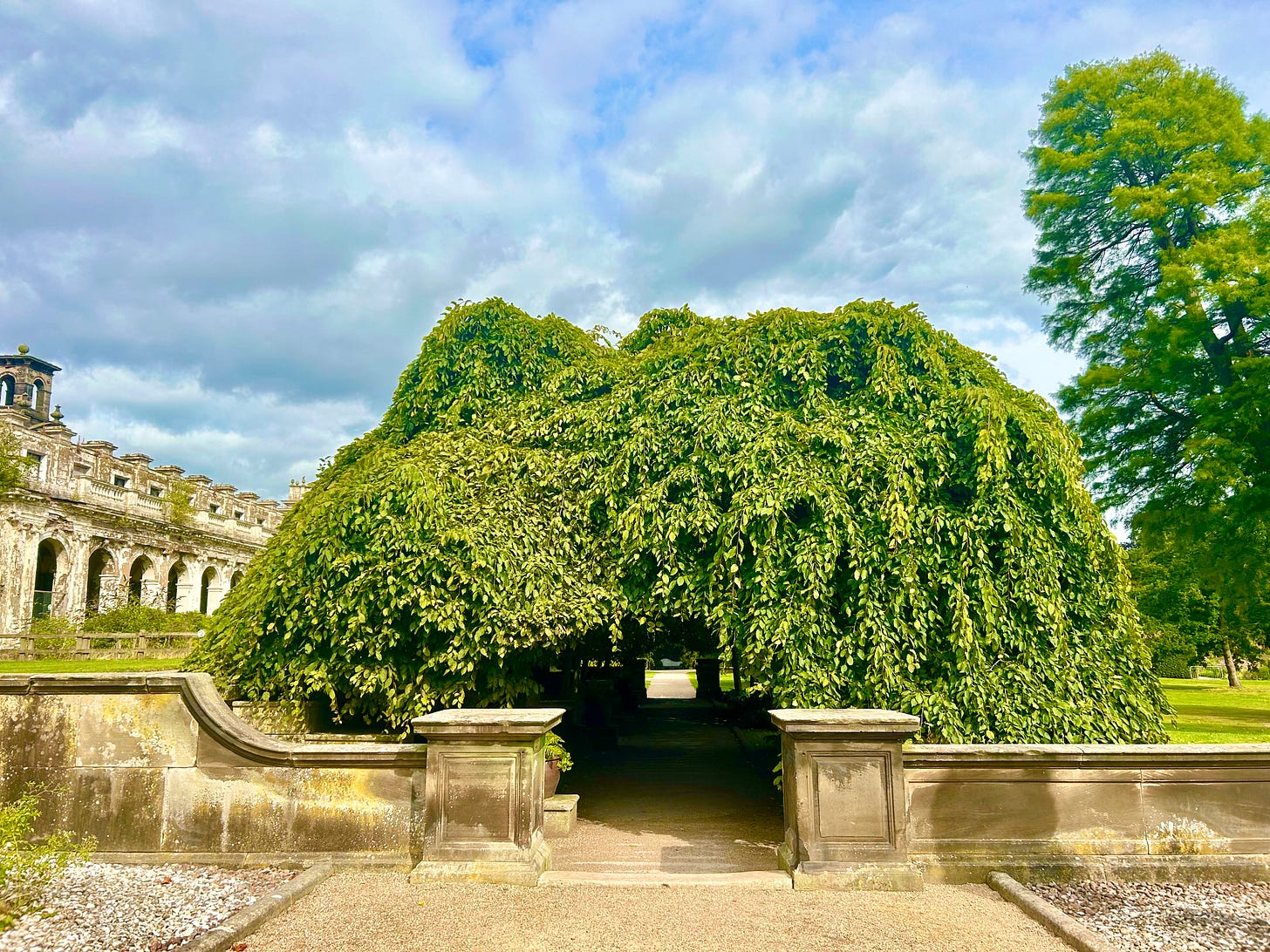

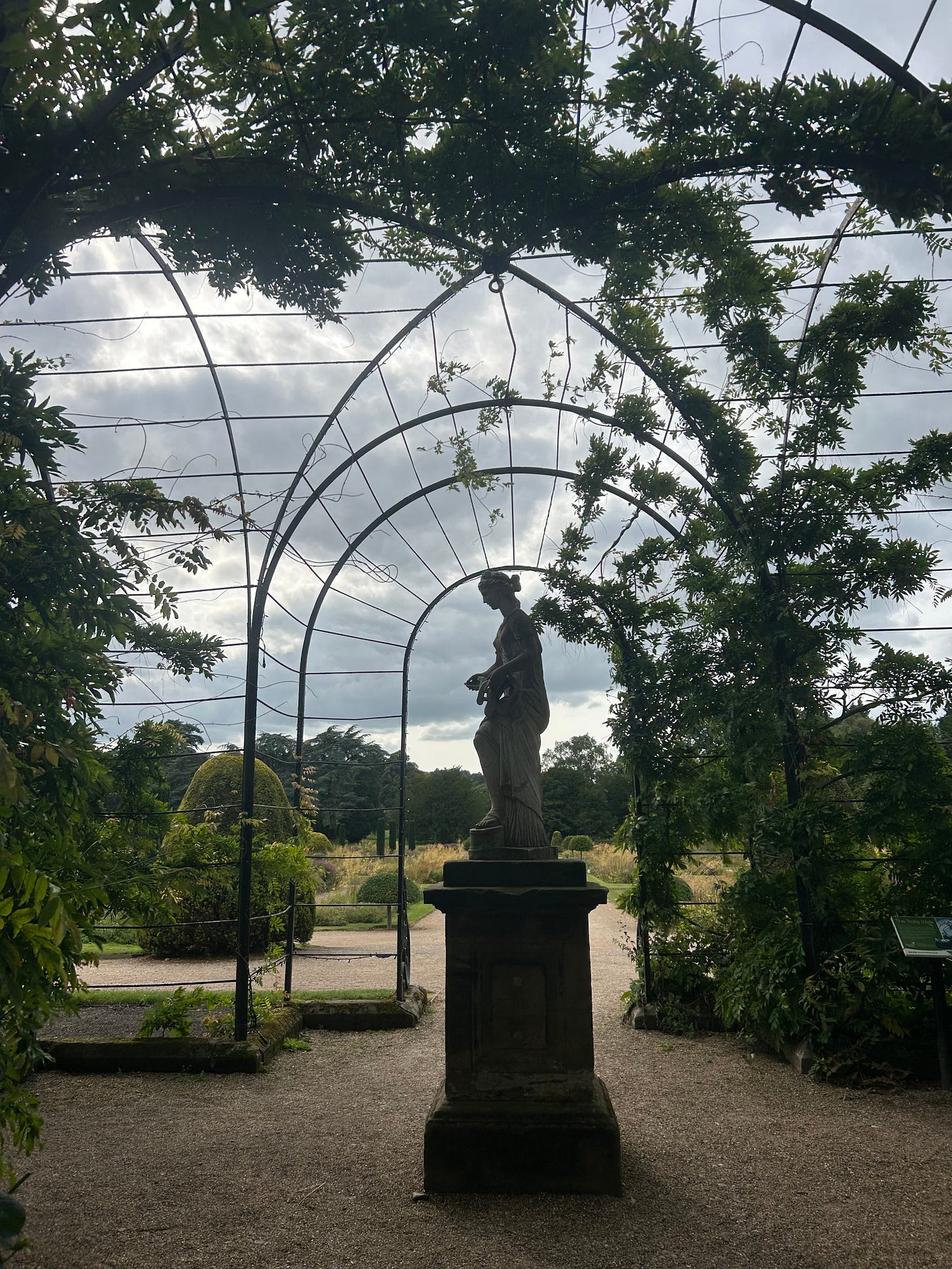

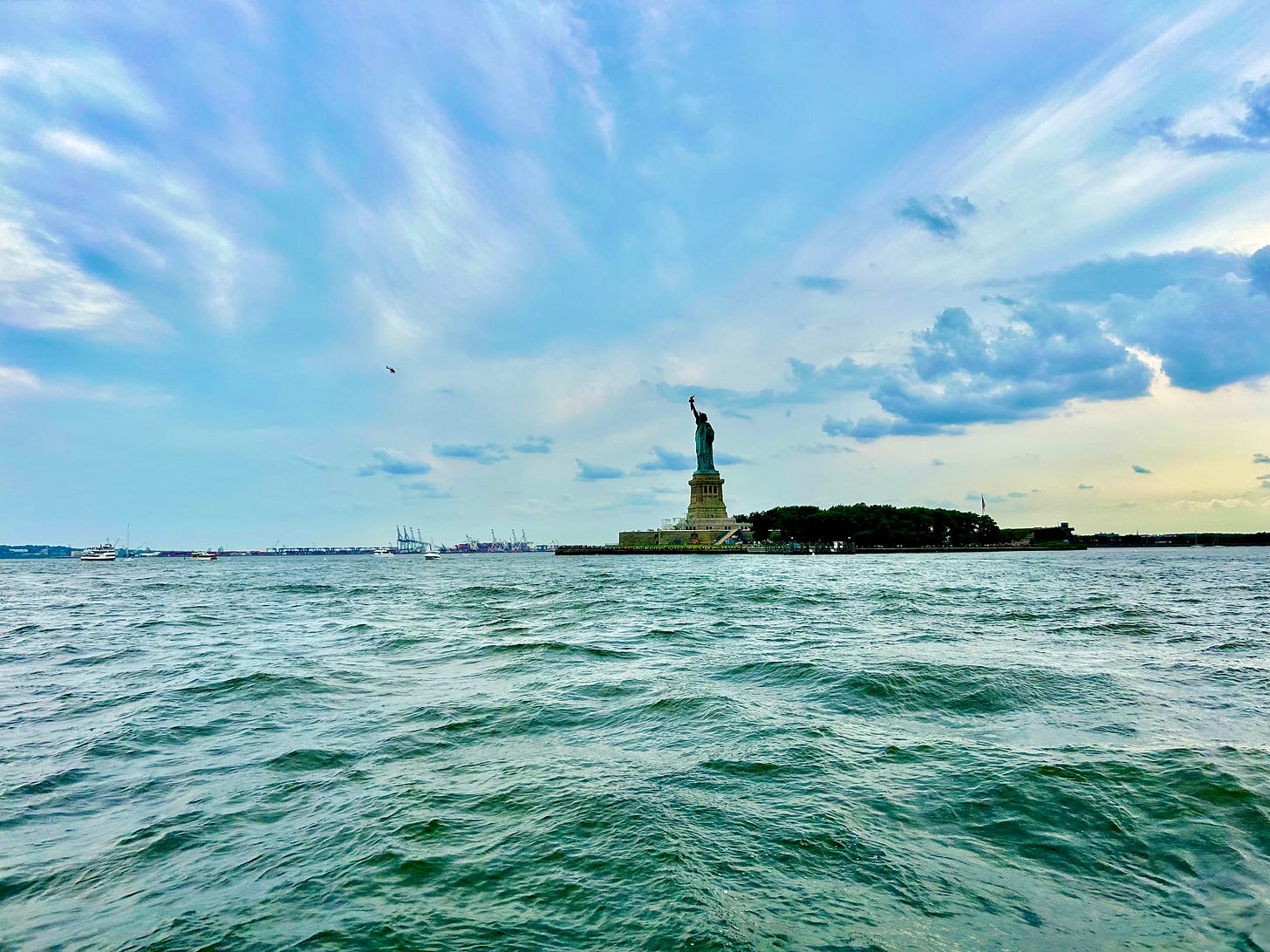
"Also, there were cats." Felis catus felix.
Any gaff topsails on that schooner? A ship ain't a ship unless you have to go aloft to furl something.